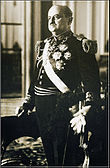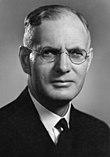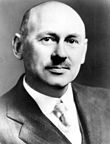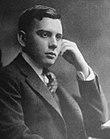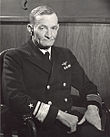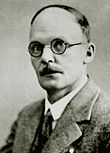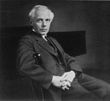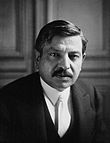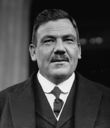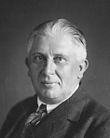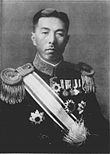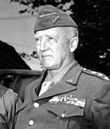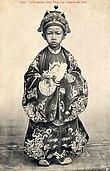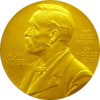| Millennium: | 2nd millennium |
|---|---|
| Centuries: | |
| Decades: | |
| Years: |
|
| Gregorian calendar | 1945 MCMXLV |
| Ab urbe condita | 2698 |
| Armenian calendar | 1394 ԹՎ ՌՅՂԴ |
| Assyrian calendar | 6695 |
| Bahá'í calendar | 101–102 |
| Balinese saka calendar | 1866–1867 |
| Bengali calendar | 1352 |
| Berber calendar | 2895 |
| British Regnal year | 9 Geo. 6 – 10 Geo. 6 |
| Buddhist calendar | 2489 |
| Burmese calendar | 1307 |
| Byzantine calendar | 7453–7454 |
| Chinese calendar | 甲申年 (Wood Monkey) 4641 or 4581 — to — 乙酉年 (Wood Rooster) 4642 or 4582 |
| Coptic calendar | 1661–1662 |
| Discordian calendar | 3111 |
| Ethiopian calendar | 1937–1938 |
| Hebrew calendar | 5705–5706 |
| Hindu calendars | |
| - Vikram Samvat | 2001–2002 |
| - Shaka Samvat | 1866–1867 |
| - Kali Yuga | 5045–5046 |
| Holocene calendar | 11945 |
| Igbo calendar | 945–946 |
| Iranian calendar | 1323–1324 |
| Islamic calendar | 1364–1365 |
| Japanese calendar | Shōwa 20 (昭和20年) |
| Javanese calendar | 1875–1876 |
| Juche calendar | 34 |
| Julian calendar | Gregorian minus 13 days |
| Korean calendar | 4278 |
| Minguo calendar | ROC 34 民國34年 |
| Nanakshahi calendar | 477 |
| Thai solar calendar | 2488 |
| Tibetan calendar | 阳木猴年 (male Wood-Monkey) 2071 or 1690 or 918 — to — 阴木鸡年 (female Wood-Rooster) 2072 or 1691 or 919 |
1945 (MCMXLV) was a common year starting on Monday of the Gregorian calendar, the 1945th year of the Common Era (CE) and Anno Domini (AD) designations, the 945th year of the 2nd millennium, the 45th year of the 20th century, and the 6th year of the 1940s decade.
It marked the end of World War II and the fall of Nazi Germany. It is also the only year in which nuclear weapons have been used in combat.
Events
Below, the events of World War II have the "WWII" prefix.
January
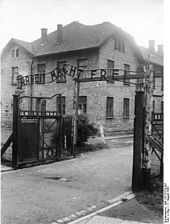
January 27 – The Soviet Red Army liberates Auschwitz.
- January – WWII: The Allied advance from Paris to the Rhine continues; the United States Army crosses the Siegfried Line.
- January 1 – WWII:
- Germany begins Operation Bodenplatte, an attempt by the Luftwaffe to cripple Allied air forces in the Low Countries.
- Chenogne massacre: German prisoners are allegedly killed by American forces near the village of Chenogne, Belgium.
- January 5 – Australia recognizes the Polish Committee of National Liberation as the government of Poland.
- January 6
- WWII: A German offensive recaptures Esztergom, Hungary from the Russians.
- Naval lieutenant George H. W. Bush, future President of the United States, and future First Lady Barbara Pierce marry in Rye, New York.
- Pepe Le Pew makes his debut as the first major Looney Tunes character, in "Odor-able Kitty"
- January 7 – WWII: British General Bernard Montgomery holds a press conference at Zonhoven, describing his role at the Battle of the Bulge.
- January 12 – WWII: The Soviet Union begins the Vistula–Oder Offensive in Eastern Europe, against the German Army.
- January 13 – WWII: The Soviet Union begins the East Prussian Offensive, to eliminate German forces in East Prussia.
- January 16 – WWII: Adolf Hitler takes residence in the Führerbunker in Berlin.
- January 17
- WWII: The Soviet Union occupies Warsaw, Poland.
- The Holocaust: Swedish diplomat Raoul Wallenberg, who has saved thousands of Jews, is taken into custody by a Soviet patrol during the Siege of Budapest and is never again seen publicly.
- January 18 – The Holocaust: The SS begins the evacuation of Auschwitz concentration camp. Nearly 60,000 prisoners, mostly Jews, are forced to march to other locations in Germany; as many as 15,000 die. The 7,000 too sick to move are left without supplies being distributed.
- January 19 – The Holocaust: Soviet forces liberate the Łódź Ghetto; only 877 Jews of the initial population of 164,000 remain at this time.
- January 20
- Franklin D. Roosevelt is sworn in for a fourth term as President of the United States, the only President ever to exceed two terms.
- Germany begins the Evacuation of East Prussia.
- January 21–22 (night) – At the Grünhagen railroad station, located in East Prussia at this date, two trains, heading for Elbing, collide. At dawn the station is reached by Soviet Army infantry and tanks which destroy the station, killing from 140 to 150 people.
- January 23 – WWII:
- Hungary agrees to an armistice with the Allies.
- German Grand Admiral Karl Dönitz orders the start of Operation Hannibal, the mass evacuation by sea of German troops and civilians from the Courland Pocket, East Prussia and the Polish Corridor, evacuating an estimated 800,000-900,000 German civilians and 350,000 soldiers from advancing Soviet forces.
- Evacuation of Germans from Grünhagen.
- January 24 – WWII: AP war correspondent Joseph Morton, nine OSS men, and four SOE agents are executed by the Germans at Mauthausen concentration camp under Hitler's Commando Order of 1942, which stipulates the immediate execution of all captured Allied commandos or saboteurs without trial, even those in proper uniforms. Morton is the only Allied correspondent to be executed by the Axis during the war.
- January 26 – WWII: 19-year-old U.S. Army Staff Sergeant Audie Murphy sees action at Holtzwihr, France, for which is awarded the Medal of Honor.
- January 27 – The Holocaust: The Soviet Red Army liberates the Auschwitz and Birkenau concentration camps.
- January 28 – WWII: Supplies begin to reach China over the newly reopened Burma Road.
- January 30 – WWII:
- MV Wilhelm Gustloff, with over 10,000 mainly civilian Germans from Gotenhafen (Gdynia) is sunk in Gdańsk Bay by three torpedoes from Soviet submarine S-13 in the Baltic Sea; up to 9,400, 5,000 of whom are children, are thought to have died – the greatest loss of life in a single ship sinking in history.
- Raid at Cabanatuan: 121 American soldiers and 800 Filipino guerrillas free 813 American prisoners of war from the Japanese-held camp in the city of Cabanatuan, in the Philippines.
- Adolf Hitler makes his last public speech to be delivered personally, on broadcast radio, expressing the belief that Germany will triumph.
- January 31 – WWII:
- The Battle of Hill 170 in the Burma Campaign ends with the British 3rd Commando Brigade defeating the Imperial Japanese Army 54th Division, causing the Japanese Twenty-Eighth Army to withdraw from the Arakan Peninsula.
- Eddie Slovik is executed by firing squad near Sainte-Marie-aux-Mines for desertion, the only U.S. soldier since the American Civil War ever executed for this offense.
February
_(B%26W).jpg)
February 4 – The "Big Three" at the Yalta Conference: Winston Churchill, Franklin D. Roosevelt and Joseph Stalin.
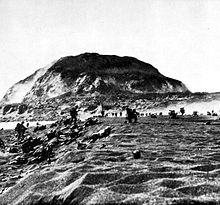
February 19 – During the Battle of Iwo Jima, U.S. Marines land on the island.
- February
- Anne Frank dies of typhus in the Bergen-Belsen concentration camp, Gau Eastern Hanover, Prussia, Germany.[1]
- Raymond L. Libby of American Cyanamid's research laboratories, at Stamford, Connecticut, announces a method of orally administering the antibiotic penicillin.[2]
- February 3 – WWII:
- Battle of Manila: United States forces enter the outskirts of Manila to capture it from the Japanese Imperial Army, starting the battle. On February 4, U.S. Army forces liberate Santo Tomas Internment Camp in the city.
- The Soviet Union agrees to enter the Pacific War against Japan, once hostilities against Germany are concluded.
- February 4–11 – WWII: President Franklin D. Roosevelt, Prime Minister of the United Kingdom Winston Churchill and Soviet leader Joseph Stalin hold the Yalta Conference.
- February 6 – French writer Robert Brasillach is executed, for collaboration with the Germans.
- February 7 – WWII: General Douglas MacArthur returns to Manila.
- February 8 – The Alaska Anti-Discrimination Act of 1945, championed by charismatic native leader Elizabeth Peratrovich, is passed by the territorial Senate, after the legislature defeated a previous bill in 1943.
- February 9
- Walter Ulbricht becomes leader of the German Communists in Moscow.
- WWII: "Black Friday": A force of Allied Bristol Beaufighter aircraft suffers heavy casualties in an unsuccessful attack on German destroyer Z33 and escorting vessels sheltering in Førde Fjord, Norway.
- February 10 – WWII: The troopship SS General von Steuben is sunk by the Soviet submarine S-13; 3,608 drown.[3]
- February 10–20 – WWII: Operation Kita: The Imperial Japanese Navy returns "Completion Force", containing both its Ise-class battleships, safely from Singapore to Kure in Japan despite Allied attacks.
- February 13 – WWII:
- The Budapest Offensive and the Siege of Budapest end with Nazi troops surrendering Budapest (Hungary) to Soviet-Romanian forces.
- Bombing of Dresden (Germany) by the British Royal Air Force and United States Army Air Forces; 22,000-25,000 are estimated to have died.
- February 16 – WWII:
- The Bombing of Wesel begins, destroying 97% of the town over three days.
- American and Filipino ground forces land on Corregidor Island in the Philippines.
- Combined American and Filipino forces recapture the Bataan Peninsula.
- Venezuela declares war on Germany.
- February 19–20 – 980 (Actual figure is disputed)[4] Japanese soldiers die as a result of being attacked by long saltwater crocodiles in Ramree, Burma.[5]
- February 19 – WWII: Battle of Iwo Jima – About 30,000 United States Marines land on Iwo Jima.
- February 21 – The last V-2 rocket is launched from Peenemünde.
- February 22 – WWII:
- Italian Front: The Battle of Monte Castello ends, after nearly three months of fighting, Brazilian troops expel German forces from a pivot point in the (Tuscan) North Apennines, where their artillery was impeding the advance of Eighth British Army toward Bologna.
- Uruguay declares war on Germany and Japan.
- February 23 – WWII:
- Battle of Iwo Jima: A group of United States Marines reach the top of Mount Suribachi on the island, and are photographed raising the American flag. The photo, Raising the Flag on Iwo Jima (taken by Joe Rosenthal), later wins a Pulitzer Prize.
- The 11th Airborne Division, with Filipino guerrillas, free the captives of the Los Baños internment camp.
- The capital of the Philippines, Manila, is liberated by combined American and Filipino ground troops.
- American and Filipino troops enter Intramuros, Manila.
- The German garrison in Poznań capitulates to Red Army and Polish troops.
- Bombing of Pforzheim: The heaviest of a series of bombing raids on Pforzheim, Germany by Allied aircraft is carried out by the British Royal Air Force. As many as 17,600 people, or 31.4% of the town's population, are killed in the raid and about 83% of the town's buildings destroyed, two-thirds of its complete area and between 80 and 100% of the inner city.
- Turkey joins the war on the side of the Allies.
- February 24 – Egyptian Premier Ahmad Mahir Pasha is killed in Parliament, after reading a decree.
- February 27 – The Bombing of Mainz results in 1,209 confirmed dead; 80% of the city is destroyed.
- February 28 – In Bucharest, a violent demonstration takes place, during which the Bolşevic group opens fire on the army and protesters. In response, Andrei Y. Vishinsky, USSR vice commissioner of foreign affairs and president of the Allied Control Commission for Romania, travels to Bucharest to compel Nicolae Rădescu to resign as premier.
March
- March 1 – President Franklin D. Roosevelt gives what will be his last address to a joint session of the United States Congress, reporting on the Yalta Conference.
- March 2
- Former U.S. Vice-President Henry A. Wallace starts his term of office as United States Secretary of Commerce, serving under President Franklin D. Roosevelt.
- The rocket-propelled Bachem Ba 349 Natter is first test launched at Stetten am kalten Markt. The launch fails and the pilot, Lothar Sieber, dies.[6]
- March 3 – WWII:
- Finland declares war on the Axis powers.
- United States and Filipino troops take Manila, Philippines.
- Pawłokoma massacre: A Polish Home Army unit massacres between 150 and 500 Ukrainian civilians in the Polish village of Pawłokoma.
- Bombing of the Bezuidenhout: The British Royal Air Force accidentally bombs the Bezuidenhout neighbourhood in The Hague, Netherlands, killing 511 people.
- March 4
- In the United Kingdom, Princess Elizabeth (later Queen Elizabeth II), joins the Auxiliary Territorial Service (ATS) as a truck driver/mechanic.
- Football club Red Star Belgrade (in Serbian: FK Crvena zvezda) is formed in Belgrade, Yugoslavia.
- March 5 – WWII: Brazilian troops take Castelnuovo (Vergato), in the last operations of the Allied Spring 1945 offensive in Italy.
- March 6
- A Communist-led government is formed in Romania under Petru Groza, following Soviet intervention.
- Resistance fighters accidentally ambush and attempt to execute SS general Hanns Albin Rauter, the arch-persecutor of the Dutch.
- March 7 – WWII: At the end of Operation Lumberjack, American troops seize the Ludendorff Bridge over the Rhine at Remagen, Germany and begin to cross; in the next 10 days, 25,000 troops with equipment are able to cross.
- March 8
- Josip Broz Tito forms a Provisional Government of the Democratic Federal Yugoslavia, in the Kingdom of Yugoslavia.
- Nazi authorities kill 117 Dutch men, in reprisal for the attempted murder of Hanns Albin Rauter.
- Operation Sunrise: Waffen-SS General Karl Wolff meets with Allen Welsh Dulles of the United States Office of Strategic Services at Lucerne, Switzerland, to negotiate the surrender of the Axis forces in Italy to the Allies.
- March 9–10 – WWII: Bombing of Tokyo: USAAF B-29 bombers attack Tokyo, Japan, with incendiary bombs, killing 100,000 citizens in the firebombing. It is the single most destructive air attack of World War II.
- March 9 – The film Les Enfants du Paradis premieres in Paris.
- March 11
- The Empire of Japan establishes the Empire of Vietnam, a puppet state which will last only until August 23, with Bảo Đại as its ruler.
- the Sammarinese general election gives San Marino the world's first democratically elected communist government, which will hold power until 1957.[7][8]
- March 12 – WWII: Swinemünde is destroyed by the USAAF, killing an estimated 8,000 to 23,000 civilians, mostly refugees saved by Operation Hannibal.
- March 15–31 – WWII: The Soviet Red Army carries out the Upper Silesian Offensive.
- March 15 – The 17th Academy Awards ceremony is held, broadcast via radio for the first time. Best Picture goes to Going My Way.
- March 16 – WWII:
- The Battle of Iwo Jima unofficially ends, with pockets of guerrilla resistance persisting until the official conclusion of the battle.
- The Bombing of Würzburg, as part of the Allied strategic bombing campaign against Nazi Germany, destroys 89% of the city and causes 4,000 deaths.
- March 17 – WWII: Kobe, Japan is fire-bombed by 331 B-29 bombers, killing over 8,000 people.
- March 18 – WWII: 1,250 American bombers attack Berlin.
- March 19 – WWII:
- Adolf Hitler orders that all industries, military installations, machine shops, transportation facilities and communications facilities in Germany be destroyed.
- Off the coast of Japan, bombers hit the aircraft carrier USS Franklin, killing about 800 of her crewmen and crippling the ship.
- March 21 – WWII:
- March 22
- The Arab League is formed, with the adoption of a charter in Cairo, Egypt.
- The Cathedral and the historic city-centre of Hildesheim in Germany are destroyed in an air raid.
- March 24
- WWII – Operation Varsity: Two airborne divisions capture bridges across the Rhine River to aid the Allied advance.
- The cartoon character Sylvester the cat debuts in Life with Feathers.
- March 26 – WWII: The Battle of Iwo Jima officially ends, with the destruction of the remaining areas of Japanese resistance.
- March 27 – WWII:
- Argentina declares war on Germany and Japan.
- The United States Army Air Forces begins Operation Starvation, laying naval mines in many of Japan's seaways.
- March 29
- WWII: The Red Army almost destroys the German 4th Army, in the Heiligenbeil Pocket in East Prussia.
- The "Clash of Titans": George Mikan and Bob Kurland duel at Madison Square Garden in New York, as Oklahoma State University defeats DePaul 52–44 in basketball.
- March 30 – WWII:
- The Red Army pushes most of the Axis forces out of Hungary into Austria.
- Alger Hiss is congratulated in Moscow, for his part in bringing the positions of the Western powers and the Soviet Union closer to each other, at the Yalta Conference.
April
.jpg)
April 7 – Japanese battleship Yamato explodes after persistent attacks from U.S. aircraft during the Battle of Okinawa.
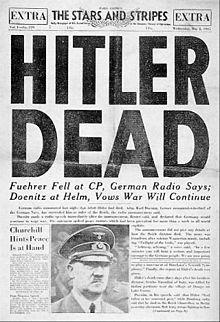
April 30 – Adolf Hitler, along with his wife Eva Braun, committed suicide.
- April 1 – WWII: Battle of Okinawa: The Tenth United States Army lands on Okinawa.
- April 4 – WWII:
- American troops liberate their first Nazi concentration camp, Ohrdruf extermination camp in Germany.
- The Red Army enters Bratislava and pushes to the outskirts of Vienna, taking it on April 13, after several days of intense fighting.
- April 6 – WWII:
- Sarajevo is liberated from Nazi Germany and the Independent State of Croatia (a fascist puppet state), by Yugoslav Partisans.
- The Battle of Slater's Knoll on Bougainville Island concludes, with a decisive victory for the Australian Army's 7th Brigade.
- Allied forces reach Merkers Salt Mines in Thuringia, where gold reserves of the Nazi German Reichsbank are stored.
- April 7 – WWII:
- The only flight of the German ramming unit known as Sonderkommando Elbe takes place, resulting in the loss of some 24 B-17s and B-24s of the United States Eighth Air Force.
- Japanese battleship Yamato and nine other warships take part in Operation Ten-Go, a suicide attack on Allied forces engaged in the Battle of Okinawa. Yamato is sunk by U.S. Navy aircraft in the East China Sea 200 miles (320 km) north of Okinawa with the loss of 2,055 of 2,332 crew, together with five other Japanese warships.
- Kantarō Suzuki becomes Prime Minister of Japan.
- April 8 – The SS begins to evacuate the Buchenwald concentration camp; inmates in the Buchenwald Resistance call for American aid, and overpower and kill the remaining guards.
- April 9
- WWII: The Battle of Königsberg, in East Prussia, ends with Soviet forces capturing the city.
- Abwehr conspirators Wilhelm Canaris, Hans Oster and Hans von Dohnányi are hanged at Flossenberg concentration camp, along with pastor Dietrich Bonhoeffer.
- Johann Georg Elser, would-be assassin of Adolf Hitler, is executed at Dachau concentration camp.
- April 10 – WWII: Visoko is liberated by the 7th, 9th and 17th Krajina Brigades from the Tenth Division of Yugoslav Partisan forces.
- April 11 – Buchenwald concentration camp is liberated by the United States Army.
- April 12
- President Franklin D. Roosevelt dies suddenly at Warm Springs, Georgia; Vice President Harry S. Truman becomes the 33rd President of the United States, and is sworn in that evening in the White House.
- WWII: The U.S. Ninth Army under General William H. Simpson crosses the Elbe River astride Magdeburg, and reaches Tangermünde — only 50 miles from Berlin.
- April 14 – WWII:
- The First Canadian Army assumes military control of the Netherlands, where German forces are trapped in the Atlantic Wall fortifications along the coastline.[9]
- Razing of Friesoythe: The 4th Canadian (Armoured) Division deliberately destroys the German town of Friesoythe, on the orders of Major General Christopher Vokes.
- April 15 – WWII:
- The Bergen-Belsen concentration camp is liberated by British and Canadian forces.
- The Canadian First Army reaches the coast in the northern Netherlands, and captures Arnhem.
- April 16 – WWII:
- The Battle of Berlin begins, opening with the Battle of the Oder–Neisse and the Battle of the Seelow Heights.
- Canadian forces take Harlingen and occupy Leeuwarden and Groningen in the Netherlands.
- MV Goya is sunk by Soviet submarine L-3 in the Baltic Sea while evacuating German troops and civilians as part of Operation Hannibal; 7,000–8,000 drown.
- Death marches from Flossenbürg concentration camp begin.
- April 17 – WWII:
- Brazilian forces liberate the town of Montese, Italy, from German forces.
- The Wieringermeer is inundated in the Netherlands, by occupying German forces.
- April 18 – American war correspondent Ernie Pyle is killed by Japanese machine gun fire, on the island of Ie Shima off Okinawa.
- April 19 – Rodgers and Hammerstein's Carousel, a musical play based on Ferenc Molnár's Liliom, opens on Broadway, and becomes their second long-running stage classic.
- April 20 – WWII: On his 56th birthday, Adolf Hitler leaves his Führerbunker, to decorate a group of Hitler Youth soldiers in Berlin. It will be his last trip to the surface from his underground bunker.
- April 22 – WWII:
- Heinrich Himmler, through Folke Bernadotte, Count of Wisborg, puts forth an offer of German surrender to the Western Allies, but not the Soviet Union.
- Adolf Hitler privately concedes defeat in his underground Berlin bunker, after learning Felix Steiner cannot mobilize enough men to launch a counterattack on the Soviet Union which has just broken through Germany.
- April 23 – WWII:
- Hermann Göring sends the Göring Telegram to Hitler, seeking confirmation that he should take over leadership of Germany, in accordance with the decree of June 29, 1941. Hitler regards this as treason.
- The main Flossenbürg concentration camp is liberated by the United States Army.
- April 24 – Retreating German troops destroy all the bridges over the Adige in Verona, including the historic Ponte di Castelvecchio and Ponte Pietra.
- April 25
- Founding negotiations for the United Nations begin in San Francisco.
- WWII – Elbe Day: United States and Soviet troops link up at the Elbe River, cutting Germany in two.
- April 25–26 – WWII: The last major strategic bombing raid by RAF Bomber Command, the destruction of the oil refinery at Tønsberg in southern Norway, is carried out by 107 Avro Lancasters.
- April 26 – WWII:
- Battle of Bautzen: The last "successful" German panzer-offensive in Bautzen ends with the city recaptured.
- The British 3rd Infantry Division, under General Whistler, captures Bremen.[10]
- Nazi surrenders mean the British and Canadians now control the German border with Switzerland, from Basle to Lake Constance.
- April 27
- The last German formations withdraw from Finland to Norway. The Lapland War and thus, World War II in Finland, comes to an end and the Raising the Flag on the Three-Country Cairn photograph is taken.
- U.S. Ordnance troops find the coffins of Frederick William I of Prussia, Frederick the Great, Paul von Hindenburg, and his wife.
- The Western Allies flatly reject any offer of surrender by Germany other than unconditional on all fronts.
- April 28
- Benito Mussolini and his mistress, Clara Petacci, are executed by Italian partisans as they attempt to flee the country. Their bodies are then hung by their heels in the public square of Milan Piazzale Loreto.
- The Canadian First Army captures Emden and Wilhelmshaven.
- April 29
- At the royal palace in Caserta, Lieutenant-Colonel Viktor von Schweinitz (representing General Heinrich von Vietinghoff) and SS-Obersturmbannfuehrer Eugen Wenner (representing Waffen-SS General Karl Wolff) sign an unconditional instrument of surrender for all Axis powers forces in Italy, taking effect on May 2. Italian General Rodolfo Graziani orders the Esercito Nazionale Repubblicano forces under his command to lay down their arms.
- Dachau concentration camp is surrendered to U.S. forces, who kill SS guards at the camp and the nearby hamlet of Webling.[11]
- Brazilian forces liberate the commune of Fornovo di Taro, Italy, from German forces.
- Operation Manna: British Avro Lancaster bombers drop food into the Netherlands, to prevent the starvation of the civilian population.
- Soviet soldiers hoist the Red flag over the Reich Chancellery in Berlin.
- Adolf Hitler marries his longtime mistress Eva Braun, in a closed civil ceremony in the Berlin Führerbunker, and signs his last will and testament.
- April 30 – Death of Adolf Hitler: Adolf Hitler and his wife of one day, Eva Braun, commit suicide as the Red Army approaches the Führerbunker in Berlin. Großadmiral Karl Dönitz succeeds Hitler as President of Germany (Reichspräsident) and Joseph Goebbels succeeds as Chancellor of Germany (Reichskanzler), in accordance with Hitler's political testament of the previous day.
May
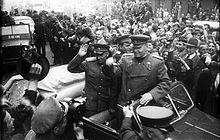
May – Prague is liberated by the Red Army.
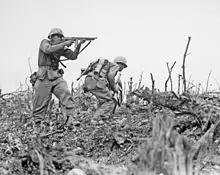
May – Marines of 1st Marine Division fighting on Okinawa.
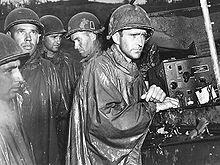
May 8 – American soldiers fighting in the Pacific theater listen to radio reports of Victory in Europe Day.
- May – Interpol (being headquartered in Berlin) effectively ceases to exist (it is recreated on June 3, 1946).
- May 1 – WWII:
- Reichssender Hamburg's Flensburg radio station announces that Hitler has died in battle, "fighting up to his last breath against Bolshevism."
- Joseph Goebbels and his wife Magda commit suicide, after killing their six children. Karl Dönitz appoints Lutz Graf Schwerin von Krosigk as the new Chancellor of Germany, in the Flensburg Government.
- Troops of the Yugoslav 4th Army, together with the Slovene 9th Corpus NOV, enter Trieste.
- Mass suicide in Demmin: An estimated 700–2,500 suicides take place, after 80% of the town has been destroyed by the Soviets during the past three days.
- May 2 – WWII:
- The Soviet Union announces the fall of Berlin.
- Lübeck is liberated by the British Army.
- The surrender of Axis troops in Italy comes into effect.
- A Holocaust death march from Dachau to the Austrian border is halted under two kilometers west of Waakirchen by the segregated, all-Nisei 522nd Field Artillery Battalion of the U.S. Army in southern Bavaria, saving several hundred prisoners.[12][13]
- Troops of the New Zealand Army 2nd Division enter Trieste a day after the Yugoslavs; the German Army in Trieste surrenders to the New Zealand Army.
- Following the death or resignation of the Hitler Cabinet in Germany, the Schwerin von Krosigk cabinet first meets.
- Neuengamme concentration camp near Hamburg is evacuated at about this date.
- Expatriate American poet Ezra Pound is arrested by the Italian resistance movement but soon released by them as of no interest; on May 5 he turns himself in to the United States Army and is imprisoned as a traitor.
- May 3 – WWII:
- The prison ships Cap Arcona (5,000 dead), Thielbek (2,750 dead) and Deutschland (all survive) are sunk by the British Royal Air Force in Lübeck Bay.
- Rocket scientist Wernher von Braun and 120 members of his team surrender to U.S. forces (later going on to help start the U.S. space program).
- German Protestant theologian Gerhard Kittel is arrested by the French forces in Tübingen, Germany.
- May 4 – WWII:
- German surrender at Lüneburg Heath: All German armed forces in northwest Germany, Denmark and the Netherlands surrender unconditionally to Field Marshal Bernard Montgomery, effective on May 5 at 08:00 hours British Double (and German) Summer Time.
- The Netherlands is liberated by British and Canadian troops.[14]
- Denmark is liberated.[15]
- Admiral Karl Dönitz orders all U-boats to cease offensive operations and return to bases in Norway.[16]
- The Holy Crown of Hungary is found in Mattsee, Austria, by the United States Army 86th Infantry Division. The U.S. government keeps the crown in Fort Knox for safekeeping from the Soviets until it is returned to Hungary on January 6 1978.[17]
- German auxiliary cruiser Orion is sunk on her way to Copenhagen carrying refugees, with a loss of over 3,800 lives.
- May 5 – WWII:
- Prague uprising: Prague rises up against occupying Nazi forces.
- The US 11th Armored Division liberates the prisoners of Mauthausen concentration camp, including Simon Wiesenthal.
- Canadian soldiers liberate the city of Amsterdam from Nazi occupation.
- A Japanese fire balloon kills six people, Elsie Mitchell and five children, near Bly, Oregon, when it explodes as they drag it from the woods. These are the only people killed by an enemy attack on the American mainland during WWII.
- The cartoon character Yosemite Sam debuts in Hare Trigger.
- May 6
- WWII: Mildred Gillars ("Axis Sally") delivers her last propaganda broadcast to Allied troops (the first was on December 11, 1941).
- Holocaust: Ebensee concentration camp in Austria is liberated by troops of the 80th Division (United States).
- May 6–7 – The government of the Independent State of Croatia, the Nazi-affiliated fascist puppet state established in occupied Yugoslavia, flees Zagreb for a location near Klagenfurt in Austria, rather than fall into the hands of the Yugoslav Partisans, initiating the Bleiburg repatriations.[18][19]
- May 7 – WWII:
- At 02:41, General Alfred Jodl signs the unconditional German Instrument of Surrender in SHAEF HQ at Reims, France, to end Germany's participation in the war. Surrender is effective on May 8 at 23:01 hours Central European Time (00:01 hours May 9 German Summer Time).
- Numerous RAF Lancasters land in Germany to repatriate British prisoners of war. Some 4,500 ex-POWs are flown back to Great Britain over the next 24 hours.
- May 8 – WWII:
- Victory in Europe Day (VE Day) is observed by the western European powers as Nazi Germany surrenders, marking the end of WWII in Europe.
- Shortly before midnight (May 9 Moscow time) the final German Instrument of Surrender is signed at the seat of the Soviet Military Administration in Berlin-Karlshorst, attended by Allied representatives.
- Canadian troops move into Amsterdam, after German troops surrender.
- The surrender of the Dodecanese is signed in Symi.
- The Eighth British Army, together with Slovene partisan troops and a motorized detachment of the Yugoslav 4th Army, arrives in Carinthia and Klagenfurt. The Croatian Armed Forces of the Independent State of Croatia are ordered by their commanders not to surrender to the Yugoslav Partisans, but to attempt to retreat to Austria and surrender to the British, part of the events leading to the Bleiburg repatriations.
- May 8–29 – Sétif and Guelma massacre: in Algeria, thousands die as French troops and released Italian POWs kill an estimated 6,000 to 40,000 Algerian citizens.
- May 9 – WWII:
- The Soviet Union marks VE Day.
- The Red Army enters Prague.
- Hermann Göring surrenders to the United States Army near Radstadt.
- Vidkun Quisling and other members of the collaborationist Quisling regime in Norway surrender to the Resistance (Milorg) and police at Møllergata 19 in Oslo, as part of the legal purge in Norway after World War II.
- General Alexander Löhr, Commander of German Army Group E near Topolšica, Slovenia, signs the capitulation of German occupation troops.
- German occupation of Guernsey and Jersey ends with their liberation by the Royal Navy as HMS Bulldog arrives in St Peter Port and HMS Beagle in St Helier.
- May 10 – WWII: German occupation of Sark ends, with its liberation by the Royal Navy.
- May 12
- Argentinian labour leader José Peter declares the Meat Industry Workers Federation dissolved.
- Rev. W. V. Awdry's children's book The Three Railway Engines, first of The Railway Series, is published in England.
- May 14–15 – WWII: Battle of Poljana: The last battle of the War in Europe is fought at Poljana near Slovenj Gradec, Slovenia.
- May 15 – WWII: – Surrender at Bleiburg – Retreating troops of the Croatian Armed Forces of the former puppet Independent State of Croatia (intermingled with fleeing civilians) attempt to surrender to the British Army at Bleiburg, but are directed to surrender to Yugoslav Partisans, who open fire on them. The remainder, after orders are given by Tito, are force-marched through Croatia and Serbia, interned or massacred, with thousands dying.[20][21]
- May 16 – WWII: German occupation of Alderney ends, with its liberation by the Royal Navy.
- May 23
- The Flensburg Government is dissolved by the Allies, and German President Karl Dönitz and German Chancellor Lutz Graf Schwerin von Krosigk are arrested by British RAF Regiment personnel at Flensburg. They are respectively the last German Head of state and Head of government until 1949.
- Heinrich Himmler, former head of the Nazi SS, commits suicide in British custody.
- May 28 – U.S.-born Irish-raised William Joyce ("Lord Haw-Haw") is captured on the German border. He is later charged with high treason in London for his English-language wartime broadcasts on German radio, convicted, and then hanged in January 1946.
- May 29
- German communists, led by Walter Ulbricht, arrive in Berlin.
- Dutch painter Han van Meegeren is arrested for collaboration with the Nazis, but the "Dutch Golden Age" paintings he has sold to Hermann Göring (Koch) are later proved to be his own fakes.
- May 30 – The Iranian government demands that all Soviet and British troops leave the country.
June
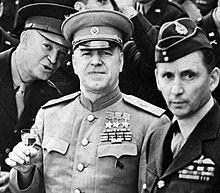
June 5 – Dwight Eisenhower, Georgy Zhukov and Arthur Tedder.
- June 1 – The British take over Lebanon and Syria.
- June 5 – The Allied Control Council, the military occupation governing body of Germany, formally takes power.
- June 7 – King Haakon VII of Norway returns to Norway five years to the day after leaving for exile in Britain.
- June 11
- William Lyon Mackenzie King is re-elected as Canadian prime minister.
- The Franck Committee recommends against a surprise nuclear bombing of Japan.[22]
- June 12 – The Yugoslav Army leaves Trieste, leaving the New Zealand Army in control.
- June 21 – WWII: The Battle of Okinawa ends, with U.S. occupation of the island until 1972.
- June 24 – WWII: A victory parade is held in Red Square in Moscow.
- June 25 – Seán T. O'Kelly is elected the second President of Ireland.
- June 26 – The United Nations Charter is signed.
- June 29 – Czechoslovakia cedes Carpathian Ruthenia to the Soviet Union.
- June 30 – John von Neumann's First Draft of a Report on the EDVAC is distributed, containing the first published description of the logical design of a computer, with stored-program and instruction data stored in the same address space within the memory (von Neumann architecture).
July
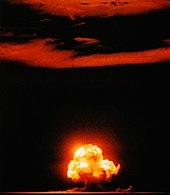
July 16 – Trinity test at night in New Mexico.
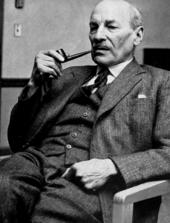
July 26 – Clement Attlee becomes British Prime Minister in a landslide election victory.
- Vannevar Bush's As We May Think published.[23]
- July 1
- WWII: Germany is divided between the Allied occupation forces.
- The Association football club Lechia Gdańsk is founded in Poland
- July 4 – Brazilian cruiser Bahia is sunk by an accidentally induced explosion, killing more than 300 and stranding the survivors in shark-infested waters.
- July 5
- The 1945 United Kingdom general election is held, though some constituencies delay their polls for local holiday reasons. Counting of votes and declaration of results are delayed until July 26 to allow for voting by the large number of service personnel still overseas.
- John Curtin, 14th Prime Minister of Australia, dies in office from heart failure at the age of 60. He is briefly replaced by his deputy Frank Forde, who serves as the 15th Prime Minister until a Labor Party leadership election is held to replace Curtin.
- WWII: The Philippines are declared liberated.
- July 6–7 – Schio massacre: 54 prisoners, mostly fascist sympathisers, are killed by members of the Italian resistance movement in Schio.
- July 8 – WWII: Harry S. Truman is informed that Japan will talk peace if it can retain the reign of the Emperor.[22]
- July 9 – A forest fire breaks out in the Tillamook Burn (the third in that area of Oregon since 1933).
- July 12 – Ben Chifley is elected leader of the Labor Party, and consequently becomes the 16th Prime Minister of Australia, defeating Frank Forde as well as Norman Makin and H.V. Evatt. As a result, Forde becomes the shortest serving Prime Minister in Australian history; nevertheless, he retains his post as Deputy Leader.
- July 14 – WWII: Italy declares war on Japan.
- July 15 – The Scott Morrison Award of Minor Hockey Excellence is first given; the first recipient is Gordie Howe.
- July 16
- The Trinity Test, the first of an atomic bomb, using about six kilograms of plutonium, succeeds in unleashing an explosion equivalent to that of 22 kilotons of TNT.
- A train collision near Munich, Germany kills 102 war prisoners.
- July 17–August 2 – WWII: Potsdam Conference – At Potsdam, the three main Allied leaders hold their final summit of the war. President Truman officially informs Stalin that the U.S. has a powerful new weapon.
- July 21 – WWII: President Harry S. Truman approves the order for atomic bombs to be used against Japan.[22]
- July 23 – WWII: French marshal Philippe Pétain, who headed the Vichy government during WWII, goes on trial for treason.
- July 26
- Winston Churchill resigns as Prime Minister of the United Kingdom, after his Conservative Party is soundly defeated by the Labour Party in the 1945 general election. Clement Attlee becomes the new Prime Minister. It is the first time that Labour has governed Britain with a majority in the House of Commons.[24]
- The Potsdam Declaration demands Japan's unconditional surrender; Article 12, permitting Japan to retain the reign of the Emperor, has been deleted by President Truman.[22]
- July 27 – WWII: Bombing of Aomori – Two USAAF B-29s drop a total of 60,000 leaflets on the city of Aomori, Japan, warning civilians of an air raid and urging them to leave immediately.
- July 28
- B-25 Empire State Building crash: A U.S. Army Air Forces B-25 bomber crashes into the Empire State Building in New York City, killing 14 people, including all on board.
- WWII: Japan ambiguously rejects the Potsdam Declaration.[22]
- July 29
- The BBC Light Programme radio station is launched, aimed at mainstream light entertainment and music.
- WWII: Bombing of Aomori: Aomori is firebombed by 63 USAAF B-29 heavy bombers, killing 1,767 civilians and destroying 18,045 homes.
- July 30 – WWII: Heavy cruiser USS Indianapolis is hit and sunk by torpedoes from the Japanese submarine I-58 in the Philippine Sea. Some 900 survivors jump into the sea and are adrift for up to four days. Nearly 600 die before help arrives. Captain Charles B. McVay III of the cruiser is later court-martialed and convicted.
August
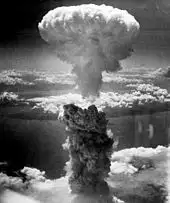
August 9 – The mushroom cloud from the nuclear bomb dropped on Nagasaki rising 18 km into the air.

August 18 – Surrender of the Japanese Army in Central China (Memorial in Wuhan).
- August 6 – WWII: Atomic bombing of Hiroshima: United States Boeing B-29 Superfortress Enola Gay drops a uranium-235 atomic bomb, codenamed "Little Boy", on the Japanese city of Hiroshima at 8:15 a.m. local time, resulting in between 90,000 and 146,000 deaths.
- August 7 – U.S. President Harry Truman announces the successful atomic bombing of Hiroshima, while he is returning from the Potsdam Conference aboard the U.S. Navy heavy cruiser USS Augusta (CA-31), in the middle of the Atlantic Ocean.
- August 8
- The United Nations Charter is ratified by the United States Senate, and this nation becomes the third to join the new international organization.
- WWII: The Soviet Union declares war on Japan.
- August 9 – WWII:
- Atomic bombing of Nagasaki: United States B-29 Bockscar drops a plutonium-239 atomic bomb, codenamed "Fat Man", on the Japanese city of Nagasaki at 11:02 a.m. local time, resulting in between 39,000 and 80,000 deaths.
- The Soviet–Japanese War opens: The Soviet Union begins its army offensive against Japan, in the northern part of the Japanese-held Chinese region of Manchuria.[25]
- August 10 – WWII: Japan offers to surrender to the Allies, "provided this does not prejudice the sovereignty of the Emperor".
- August 11
- WWII: The Allies reply to the Japanese surrender offer by stating that Emperor Hirohito will be subject to the authority of the Supreme Commander of the Allied Forces.
- The Holocaust: Kraków pogrom – Róża Berger is shot dead by Polish militia.
- August 11–25 – Soviet troops complete the occupation of Sakhalin.
- August 13 – The Zionist World Congress approaches the British government to discuss the founding of the country of Israel.
- August 14 – WWII: Emperor Hirohito accepts the terms of the Potsdam Declaration. His recorded announcement of this is smuggled out of the Tokyo Imperial Palace. At 19:00 hrs in Washington, D.C. (23:00 GMT), U.S. President Harry S. Truman announces the Japanese surrender.
- August 15
- WWII:
- Bombing of Kumagaya, Japan, by the United States using conventional bombs, beginning at 00:23.
- Jewel Voice Broadcast (Gyokuon-hōsō): Emperor Hirohito's announcement of the unconditional surrender of Japan is broadcast on the radio a little after noon (12:00 Japan Standard Time is 03:00 GMT). This is probably the first time an Emperor of Japan has been heard by the common people. Delivered in formal classical Japanese, without directly referring to surrender and following official censorship of the country's weak position, the recorded speech is not immediately easily understood by ordinary people. The Allies call this day Victory over Japan Day (V-J Day). This ends the period of Japanese expansionism, and begins the period of the Occupation of Japan. Korea gains independence.
- The August Revolution in Vietnam begins, with the Viet Minh taking over the capital Hanoi, taking advantage of the collapse of Japanese power.
- The Provisional International Civil Aviation Organization is founded, as a specialized agency of the United Nations.
- WWII:
- August 16 – A Polish–Soviet treaty establishes boundaries between the two countries.
- August 17
- Philippines President José P. Laurel issues an Executive Proclamation putting an end to the Second Philippine Republic, thus ending his term as President of the Philippines.
- Proclamation of Indonesian Independence: Indonesian nationalists Sukarno and Mohammad Hatta declare the independence of the Republic of Indonesia, with Sukarno as president and Mohammad Hatta as vice-president, igniting the Indonesian National Revolution against the Dutch Empire.
- The allegorical dystopian novella Animal Farm by George Orwell, a satire on Stalinism, is first published by Fredric Warburg in London.
- August 18 – WWII: Death of Subhas Chandra Bose: Indian nationalist leader Subhas Chandra Bose is killed as a result of his overloaded Japanese plane crashing in Japanese Taiwan..
- August 19 – Chinese Civil War: Mao Zedong and Chiang Kai-shek meet in Chongqing to discuss an end to hostilities between the Communists and the Nationalists.
- August 23 – Soviet–Japanese War: Joseph Stalin orders the detention of Japanese prisoners of war in the Soviet Union.
- August 25 – Bảo Đại abdicates as Emperor of Vietnam, ending 2,000 years of dynastic and monarchic rule in the country and 143 years of the Nguyễn dynasty.
- August 30 – WWII: Vietnam's capital Hanoi is taken by the Viet Minh, which ends the French occupation in what becomes North Vietnam, and thus the southern provinces become South Vietnam. This ends the August Revolution.
- August 31
- WWII: Allied troops arrest German field marshal Walther von Brauchitsch.
- A team at American Cyanamid's Lederle Laboratories, Pearl River, New York, led by Yellapragada Subbarow, announces they have obtained folic acid in a pure crystalline form.[26] This vitamin is abundant in green leaf vegetables, liver, kidney, and yeast.[27]
September
- September 2 – World War II ends:
- Japanese general Tomoyuki Yamashita surrenders to Filipino and American forces at Kiangan, Ifugao.
- The final official Japanese Instrument of Surrender is accepted by the Supreme Allied Commander, General Douglas MacArthur, and Fleet Admiral Chester W. Nimitz for the United States, and delegates from the United Kingdom, Australia, New Zealand, the Netherlands, China, and others from a Japanese delegation led by Mamoru Shigemitsu, on board the American battleship USS Missouri in Tokyo Bay.
- General Douglas MacArthur is given the title of Supreme Commander Allied Powers, and is also tasked with the occupation of Japan.[28]
- The Democratic Republic of Vietnam is officially established, by Ho Chi Minh.[28]
- September 4 – WWII: Japanese forces surrender on Wake Island, after hearing word of their country's surrender.
- September 5
- Iva Toguri D'Aquino, a Japanese American suspected of being wartime radio propagandist "Tokyo Rose", is arrested in Yokohama.
- Russian code clerk Igor Gouzenko comes forward with numerous documents, implicating the Soviet Union in many spy rings in North America, both in the United States and in Canada.
- September 8
- September 9 – Chiang Kai-shek officially accepts the Japanese capitulation at Nanking.[28]
- September 10 – Vidkun Quisling is sentenced to death as a Nazi collaborator, in Norway.[28]
- September 11
- Hideki Tōjō, Japanese prime minister during most of WWII, attempts suicide to avoid facing a war crimes tribunal.
- Radio Republik Indonesia starts broadcasting.
- The Batu Lintang camp in Sarawak, Borneo is liberated by Australian forces.
- September 12 – The Japanese Army formally surrenders to the British in Singapore.
- September 18
- Typhoon Makurazaki kills 3,746 people in Japan.
- The Japanese Army in Central China officially surrenders to the Chinese, in Wuhan.
- September 20 – Mohandas Gandhi and Jawaharlal Nehru demand that all British troops depart India.
- September 24 – Anti-Jewish violence in Central and Eastern Europe, 1944–46: The Topoľčany pogrom is carried out in Slovakia.
October
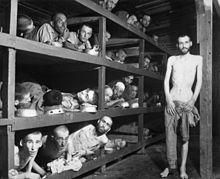
October 18 – Nuremberg trials begin, after Buchenwald closes.
.svg.jpg)
October 24 – United Nations formed. This is its flag (the modern version is slightly retouched).
- October – Arthur C. Clarke puts forward the idea of a geosynchronous communications satellite, in a Wireless World magazine article.
- October 1–15 – Operation Backfire: Three A4 rockets are launched near Cuxhaven, in a demonstration to Allied forces.
- October 2– George Albert Smith becomes president of The Church of Jesus Christ of Latter-day Saints.
- October 4 – The Partizan Belgrade sports club is founded in Belgrade, Serbia.
- October 5 – Hollywood Black Friday: A strike by the Set Decorator's Union in Hollywood results in a riot.
- October 8–15 – Hadamar Trial: Personnel of the Hadamar Euthanasia Centre, now in the American zone of Allied-occupied Germany, are the first to be tried for systematic extermination in Nazi Germany.
- October 9 – Pierre Laval is sentenced to death, for collaboration with the Nazis in Vichy France.[28]
- October 10 – The Nazi Party is officially dissolved by the Allied Powers.
- October 14 – Czechoslovakia: A new provisional national assembly is elected.[28]
- October 15 – WWII: Pierre Laval, the former premier of Vichy France, is shot dead by a firing squad, for treason against France.
- October 15–21 – The Fifth Pan-African Congress is held in Manchester.
- October 16 – The Food and Agriculture Organization is established at a meeting in Quebec City, as a specialized agency of the United Nations.
- October 17 – A massive number of people, headed for the General Confederation of Labour (Argentina), gather in the Plaza de Mayo in Buenos Aires to demand Juan Perón's release. This is known to the Peronists as the Día de la lealtad (Loyalty Day) and considered the founding day of Peronism.
- October 18 – Isaías Medina Angarita, president of Venezuela, is overthrown by a military coup.[28]
- October 19 – Members of the Indonesian People's Army attack Anglo-Dutch forces in Indonesia.[28]
- October 20 – Mongolians vote for independence from China.[28]
- October 21 – Women's suffrage: Women are allowed to vote in the French Legislative Election for the first time.
- October 22 – Rómulo Betancourt is named provisional president of Venezuela.[28]
- October 23 – Jackie Robinson signs a contract with the Montreal Royals baseball team.
- October 24
- The United Nations is founded by ratification of its Charter, by 29 nations.[28]
- The International Court of Justice ("World Court") is established by the United Nations Charter.
- Norwegian Nazi leader Vidkun Quisling is executed by firing squad, for treason against Norway.[28]
- October 25
- WWII: Japanese armed forces in Taiwan surrender to the Allies.
- Getúlio Vargas is deposed as president in Brazil; José Linhares is named temporary president.[28]
- Osijek prison massacre
- October 27–November 20 – Indonesian National Revolution: Battle of Surabaya – Pro-independence Indonesian soldiers and militia fight British and British Indian troops in Surabaya.
- October 29
- Getúlio Vargas resigns as president of Brazil.
- At Gimbels Department Store in New York City, the first ballpoint pens go on sale at $12.50 each.
- October 30 – The undivided country of India joins the United Nations.
November
- Astrid Lindgren's children's book Pippi Långstrump is published in Sweden, and its English translation as Pippi Longstocking is also issued.
- November 1
- International Labour Organization's new constitution comes into effect.
- John H. Johnson publishes the first issue of the magazine Ebony.
- Telechron introduces the model 8H59 Musalarm, the first clock radio.
- November 5 – Colombia joins the United Nations.
- November 6 – Indonesians reject an offer of autonomy from the Dutch.[28]
- November 9 – Soo Bahk Do and Moo Duk Kwan martial arts are founded in Korea.
- November 10 – Indonesian National Revolution: Battle of Surabaya – Following the killing of British officer Brigadier A. W. S. Mallaby on October 30, the British Indian Army (in support of its allied Dutch colonial administration) begins an advance on Surabaya in the Dutch East Indies against Indonesian nationalists; although most of the city is retaken in 3 days of heavy fighting, the strength of the resistance leads to today being celebrated as Heroes' Day (Hari Pahlawan) in Indonesia.
- November 11 – 1945 Yugoslavian parliamentary election: Marshal Josip Broz Tito and the People's Front win a decisive majority (90%) in the Yugoslavian Assembly.[28]
- November 15
- Harry S. Truman, Clement Attlee and Mackenzie King share nuclear information with the U.N. and call for a United Nations Atomic Energy Commission.[22][28]
- An offensive is begun in Manchuria by the Kuomintang (Chinese Nationalists) against further infiltration by the Communist Party of China.[28]
- November 16
- Charles de Gaulle is unanimously elected president of France by the provisional government.[28]
- The United States controversially imports 88 German scientists to help in the production of rocket technology.
- The foundation of UNESCO (United Nations Educational, Scientific and Cultural Organization) is agreed at a meeting in London.
- The cartoon character Casper the Friendly Ghost debuts, in The Friendly Ghost.
- The motion picture The Lost Weekend, starring Ray Milland, is released. The most realistic film portrayal of alcoholism up to this time, it wins several Academy Awards the following year.
- Yeshiva College is founded in New York City.
- November 18 – The Tudeh party starts a bloodless coup, and will form Azerbaijan within days. Soviet troops prevent Iranian troops from getting involved.
- November 20 – The Nuremberg trials begin: Trials against 22 Nazis for war crimes of World War II start at the Palace of Justice, Nuremberg.[28]
- November 26 – U.S. Ambassador to China Patrick J. Hurley resigns after he is unable to broker a deal between Chiang Kai-shek and Mao Tse-tung.[28]
- November 28 – The 1945 Balochistan earthquake causes a tsunami and kills 4,000.
- November 29
- The Socialist Federal Republic of Yugoslavia is declared (this day is celebrated as Republic Day until the 1990s). Marshal Tito is named president.
- Assembly of the world's first general purpose electronic computer, the Electronic Numerical Integrator Analyzer and Computer (ENIAC), is completed in the United States, covering 1,800 square feet (170 m2) of floor space, and the first set of calculations is run on it.
December
- December 2
- General Eurico Gaspar Dutra is elected president of Brazil.
- French banks (Banque de France, BNCI, CNEP, Crédit Lyonnais, and Société Générale) are nationalized.
- December 3 – Communist demonstrations in Athens presage the Greek Civil War.
- December 4 – The United States Senate approves the entry of the United States into the United Nations by a vote of 65–7.
- December 5 – A flight of United States Navy Grumman TBF Avenger torpedo bombers (known as Flight 19) disappears on a training exercise from Naval Air Station Fort Lauderdale.
- December 19 – British fascist John Amery, having pleaded guilty on November 28 to treason, is hanged in London.
- December 21 – American General George S. Patton dies from injuries sustained in a car accident on December 9 in Germany.
- December 24 – Sodder children disappearance: Five of nine children go missing after their home in Fayetteville, West Virginia, is burned down.
- December 27
- Twenty-eight nations sign an agreement creating the World Bank.
- Terror strikes are carried out against British military bases in Mandatory Palestine.
Date unknown
- A team at Oak Ridge National Laboratory (led by Charles Coryell) discovers chemical element 61, the only one still missing between 1 and 96 on the periodic table, which they will name promethium.[29] Found by analysis of fission products of irradiated uranium fuel, its discovery is not made public until 1947.
- The first geothermal milk pasteurization is done in Klamath Falls, Oregon.
Births
January
- January 1
- Diahnne Abbott, American actress and singer
- Pietro Grasso, Italian politician
- Jacky Ickx, Belgian racing driver
- Martin Schanche, Norwegian racing driver, politician
- January 2 – Terje Bjørklund, Norwegian jazz pianist
- January 3 – Stephen Stills, American rock singer-songwriter (Crosby, Stills, Nash & Young)
- January 4
- Sima Bina, Iranian vocalist
- Richard R. Schrock, American chemist, Nobel Prize laureate
- January 5
- Lynn Di Nino, American artist
- Júlio Isidro, Portuguese television presenter
- Robert Pindyck, American economist
- January 6
- Park In-hwan, South Korean actor
- James Senese, Italian composer
- January 7 – Shulamith Firestone, Canadian American feminist, writer (d. 2012)
- January 8
- Dave Hodge, Canadian sports announcer
- Kojo Nnamdi, American journalist
- Miyoko Watai, Japanese chess player
- January 9 – John Doman, American actor
- January 10
- Baxter Black, American cowboy
- Gunther von Hagens, German anatomist, inventor
- Jennifer Moss, British actress (d. 2006)
- Steven P. Perskie, American politician, judge
- Rod Stewart, British rock singer
- January 11
- Christine Kaufmann, German actress (d. 2017)
- Ray Pilon, American politician
- January 12
- Maggie Bell, Scottish rock vocalist
- André Bicaba, Burkinabé sprinter
- Margaret Anne Staggers, American politician and emergency physician
- January 13
- Pierre Galle, French basketball player
- Elizabeth Raum, Canadian composer
- January 14
- Einar Hákonarson, Icelandic painter
- Enid Kent, American television actress
- Vonetta McGee, American actress (d. 2010)
- Cathlyn Platt Wilkerson, American far-left radical
- January 15
- Karen Carlson, American actress
- Vince Foster, American deputy White House counsel during the first term of President Bill Clinton (d. 1993)
- Princess Michael of Kent, German-born member of the British Royal Family
- January 16
- Murat Kunt, Swiss scientist
- Sinyo Harry Sarundajang, Indonesian politician
- Keith Wayne, American actor
- January 17 – Javed Akhtar, Indian political activist, poet, lyricist and screenwriter
- January 18 – José Luis Perales, Spanish singer-songwriter
- January 19
- Charles Amirkhanian, American composer
- Rod Canion, American computer scientist
- Toddy Puller, American politician
- January 20 – Robert Olen Butler, American writer
- January 21
- Arthur Beetson, Australian rugby league player and coach (d. 2011)
- Martin Shaw, British screen actor
- January 22 – David G. Bronner, American businessman
- January 23
- Mike Harris, Canadian politician
- Bruce Ratner, American philanthropist
- Sally Smith (politician), American politician
- January 24
- D. Todd Christofferson, American lawyer
- Elaine Giftos, American model, actress and dancer
- Subhash Ghai, Indian film director, producer and screenwriter
- January 25
- Jill Townsend, American actress
- Leigh Taylor-Young, American actress
- Dave Walker, British rock musician
- January 26
- Jacqueline du Pré, English cellist (d. 1987)
- Graham Williams, New Zealand rugby union player (d. 2018)
- January 27 – Harold Cardinal, Cree political leader, writer and lawyer (d. 2005)
- January 28
- Karen Lynn Gorney, American actress (Saturday Night Fever)
- Chuck Pyle, American country-folk singer-songwriter (d. 2015)
- January 29
- Jim Nicholson, Northern Irish politician
- Tom Selleck, American actor (Magnum, P.I.)
- January 30 – Michael Dorris, American author (d. 1997)
- January 31 – Joseph Kosuth, American artist
February
- February 1
- Reylina Nicolas, Filipino politician
- Yasuhiro Takai, Japanese professional baseball player (d. 2019)
- February 2
- Larry Agran, Mayor of Irwin, California
- Josephine Humphreys, American novelist
- February 3
- Roy 'Chubby' Brown, British stand-up comedian
- Bob Griese, American football player
- Philip Waruinge, Kenyan boxer
- February 4
- Tony Haygarth, English television actor
- John P. Jumper, Retired United States Air Force general
- February 5
- Sarah Weddington, American attorney
- Peter Ford (actor), American actor
- February 6
- Steven Keats, American actor (d. 1994)
- Bob Marley, Jamaican reggae singer-songwriter and musician (d. 1981)
- Michael Tucker (actor), American actor
- February 7
- Gerald Davies, Welsh rugby player
- Alan M. Steinman, American physician
- February 8
- Louis Giambalvo, American actor
- Rino Barillari, Italian photographer
- February 9 – Mia Farrow, American actress
- February 10
- Koo Bon-moo, South Korean business executive (d. 2018)
- Kathy Mullen, American actress
- February 11
- Jimmy Dixon, American politician
- Ralph Doubell, Australian athlete
- Chuck Patterson, American actor (d. 2013)
- Dick Stevenson, member of Pennsylvania House of Representatives
- February 12
- Luiz Carlos Alborghetti, Italian-Brazilian radio commenter, showman and political figure (d. 2009)
- Maud Adams, Swedish actress
- Cliff DeYoung, American actor
- David D. Friedman, American economist
- Gareth Thomas (actor), American actor (d. 2016)
- February 13
- Luiz Couto, Brazilian politician
- Terrayne Crawford, American actress
- Simon Schama, English academician, historian
- February 14
- Adiss Harmandian, Lebanese-Armenian pop singer (d. 2019)
- Carl Bernstein, American investigative journalist and author
- Prince Hans-Adam II of Liechtenstein
- February 15 – Douglas Hofstadter, American cognitive scientist
- February 16
- Jeremy Bulloch, English actor (d. 2020)
- Pete Christlieb, American jazz musician
- Elliot Mintz, American consultant
- February 17
- Zina Bethune, American actress (d. 2012)
- Brenda Fricker, Irish actress
- Calvin Jung, American actor
- February 18
- Hashem Mahameed, Israeli politician (d. 2018)
- Edir Macedo, Brazilian evangelical leader, media mogul
- February 19
- Jim Bradley, American politician
- Bill Casey, Canadian politician
- Michael Nader, American actor
- February 20
- Brion James, American character actor (d. 1999)
- Randa Haines, American film director
- Henry Polic II, American actor (d. 2013)
- February 21 – Bill Sandifer III, American politician
- February 22 – Oliver, American singer (Good Morning Starshine) (d. 2000)
- February 23 – John J. Siegfried, American economist
- February 24 – Barry Bostwick, American actor
- February 25
- Elkie Brooks, English singer
- Roy Saari, American swimmer (d. 2008)
- February 26 – Marta Kristen, Norwegian actress (Lost In Space)
- February 27
- Carl Anderson, American singer, actor (Jesus Christ Superstar) (d. 2004)
- Steve Chassey, American race car driver
- Frank Kolb, German professor
- Daniel Olbrychski, Polish actor
- February 28
- Mimsy Farmer, American actress
- Bubba Smith, American football player, actor (d. 2011)
March
- March 1 – Dirk Benedict, American actor
- March 2
- Hamza Abdullahi, Nigerian politician, military officer (d. 2019)
- Donald Kushner, American producer
- Gordon Thomson, Canadian actor
- March 3
- George Miller, Australian film director
- Hattie Winston, American actress
- March 4
- Dieter Meier, Swiss singer, writer
- Tommy Svensson, Swedish football manager, player
- Andrew Stein, American politician
- Gary Williams, American basketball coach
- March 5
- Kenneth P. Moritsugu, American physician
- John Primer, American singer
- March 6
- Gennadi Bogachyov, Russian theater actor
- Don Reinhoudt, American strongman
- Umeji Sasaki, Japanese actor
- Bob Trumpy, American football player
- March 7
- Bob Herbert, American journalist
- Arthur Lee, American musician (d. 2006)
- Elizabeth Moon, American science-fiction writer
- Thomas A. Schwartz, Retired U.S. Army four-star general
- March 8
- Bruce Broughton, American composer
- Jim Chapman, American politician
- Micky Dolenz, American actor, director and rock musician (The Monkees)
- Anselm Kiefer, German painter
- March 9
- Katja Ebstein, German singer
- Dennis Rader, American serial killer
- Cocoa Samoa, American professional wrestler (d. 2007)
- John Wojtowicz, American bank robber (d. 2006)
- March 10
- Nobuhiko Higashikuni, Japanese Imperial prince (d. 2019)
- Katharine Houghton, American actress
- Min Tanaka, Japanese dancer
- March 11
- Harvey Mandel, American guitarist
- Tricia O'Neil, American actress
- March 12 – Sammy Gravano, American mobster
- March 13
- Othman Abdullah, Malaysian footballer (d. 2015)
- Tom Chapin, American musician
- Anatoly Fomenko, Russian mathematician
- Sayuri Yoshinaga, Japanese actress
- March 14
- Michael Martin Murphey, American country singer-songwriter
- Walter Parazaider, American musician
- March 15
- A. K. Faezul Huq, Bangladeshi lawyer, politician (d. 2007)
- Tracy Smith, American distance runner
- Danny Yatom, Israeli politician
- March 16
- Eve Slater, American physician
- Diane Grendell, American judge
- March 17
- Katri Helena, Finnish singer
- Bernd Karwofsky, German ski-jumper
- Daniel Onega, Argentine soccer player
- Elis Regina, Brazilian singer (d. 1982)
- March 18
- Joy Fielding, Canadian novelist
- Michael Reagan, American television personality, political commentator and Republican strategist
- Bobby Solo, Italian singer
- Marta Suplicy, Brazilian politician and psychologist
- Susan Tyrrell, American character actress (d. 2012)
- March 19 – Charles Richards, American modern pentathlete
- March 20
- Jay Ingram, Canadian television host, author and journalist
- Bobby Jameson, American singer-songwriter (d. 2015)
- Pat Riley, American basketball coach
- March 21
- Linda Cadwell, American teacher
- Charles Greene, American Olympic athlete
- March 22
- Sheila Frahm, American politician
- Andrey P. Pashkevich, Russian cinematographer
- March 23
- David Milch, American writer
- David Grisman, American musician
- March 24
- Robert T. Bakker, American paleontologist
- Edward Espe Brown, American writer
- Steve Fisher, American basketball coach
- Camilla Hall, American artist (d. 1974)
- Curtis Hanson, American film director, screenwriter (d. 2016)
- March 25
- Jim Huffman, Republican professor, 2010 United States Senate election in Oregon
- Menas Kafatos, American physicist
- March 26 – Mikhail Voronin, Russian gymnast (d. 2004)
- March 27 – Władysław Stachurski, Polish football player, manager (d. 2013)
- March 28
- Rodrigo Duterte, 16th President of the Philippines
- Raine Loo, Estonian actress
- March 29
- Walt Frazier, African-American basketball player
- Willem Ruis, Dutch game show host (d. 1986)
- March 30 – Eric Clapton, English rock guitarist (Layla)
- March 31
- Edwin Catmull, American computer scientist, President of Walt Disney Animation Studios
- Valerie Curtin, American actress
- Gabe Kaplan, American actor, comedian and professional poker player (Welcome Back, Kotter)
April
- April 1 – Heather Young (actress), American actress
- April 2
- Roger Bootle-Wilbraham, 7th Baron Skelmersdale, British politician (d. 2018)
- Jürgen Drews, German singer
- Linda Hunt, American actress
- April 3 – Catherine Spaak, French-Italian actress and singer
- April 4
- Daniel Cohn-Bendit, French political activist
- Carola Dibbell, American music journalist and author
- Caroline McWilliams, American actress (d. 2010)
- Guy Teissier, Member of National Assembly of France
- April 5
- Steve Carver, American film director
- Cem Karaca, Turkish musician (d. 2004)
- Jay Mathews, American author
- Tommy Smith, English footballer (d. 2019)
- Doug Favell, Canadian ice hockey player
- April 6 – Neal Boortz, American author
- April 7
- Bob Brady, U.S. Representative for Pennsylvania's 1st congressional district
- Werner Schroeter, German film director (d. 2010)
- Robert S. Wistrich, Jewish professor (d. 2015)
- April 8
- Henry Lee Adams Jr., Senior United States District Judger
- Jang Yong, South Korean actor
- April 9
- Steve Gadd, American drummer
- Peter Gammons, American baseball sportswriter
- April 10
- Claude Jeannerot, Member of the Senate of France
- Reggie Lacefield, American basketball player
- April 11
- Christian Quadflieg, German actor
- April 12
- Ellen Gittelsohn, American television director
- Glenn Hauser, American radio host
- Mike Jarvis, American basketball coach
- Lee Jong-wook, South Korean Director-General of the World Health Organization (d. 2006)
- Serge Schmemann, French writer
- April 13
- Lucha Corpi, Mexican poet
- Tony Dow, American actor, producer and director (Leave It to Beaver)
- Lowell George, American rock musician (Little Feat) (d. 1979)
- Bob Kalsu, American football player (d. 1970)
- April 14
- Ritchie Blackmore, English rock guitarist
- Johan Devrindt, Belgian soccer player
- Yves Chauveau, French goalkeeper
- Roger Frappier, Canadian producer
- Tuilaepa Aiono Sailele Malielegaoi, Prime Minister of Samoa
- Eliot Zigmund, American drummer
- April 15 – Ted Sizemore, American baseball player
- April 16
- John Andrew Barnes III, American soldier (d. 1967)
- Karen Ingenthron, American author and actress
- April 17
- Marsha S. Berzon, United States Circuit Judge
- Stephen E. Braude, American philosopher
- April 18 – Ada L. Smith, New York State Senator
- April 19 – Elliott West, American historian
- April 20
- Michael Brandon, American actor ((Thomas & Friends))
- Naftali Temu, Kenyan Olympic athlete (d. 2003)
- Jimmy Winston, English musician and actor (d. 2020)
- April 21
- Helen Giddings, American entrepreneur
- Howard Schwartz, American folklorist
- Ana Lúcia Torre, Brazilian actress
- April 22
- Evan Dobelle, American higher-education administrator
- Cleve Francis, American country music singer
- Donald E. Graham, Chairman of The Graham Holdings Company
- April 23 – François Clemmons, American singer and actor
- April 24
- Doug Clifford, American drummer
- Larry Tesler, American computer scientist (d. 2020)
- April 25
- Stu Cook, American bassist
- Björn Ulvaeus, Swedish rock songwriter (ABBA)
- April 26 – Richard Doyle (actor), American actor
- April 27
- Robert Cialdini, American professor
- Jim McCotter, American entrepreneur
- August Wilson, American playwright (d. 2005)
- April 28 – Timothy Hallinan, Member of the Wyoming House of Representatives
- April 29
- Hugh Hopper, British musician (d. 2009)
- Gary Stephen Krist, American convicted of kidnapping and the trafficking of illegal aliens
- Paolo Pietrangeli, Italian film director
- Tammi Terrell, African-American soul singer (d. 1970)
- April 30
- Annie Dillard, American author
- Lara Saint Paul, Eritrean-born Italian singer (d. 2018)
May
- May 1 – Rita Coolidge, American pop singer
- May 2 – James Vaupel, American scientist
- May 3 – Jeffrey C. Hall, American geneticist and chronobiologist, Nobel Prize laureate
- May 4 – Narasimhan Ram, Indian journalist
- May 5
- Chuck Holmes, American adult film producer (d. 2000)
- Kurt Loder, American film critic, author and television personality
- May 6
- Jimmie Dale Gilmore, American musician
- Bob Seger, American rock singer (Old Time Rock and Roll)
- May 7 – Robin Strasser, American actress
- May 8 – Keith Jarrett, American musician
- May 9 – Jupp Heynckes, German footballer and manager
- May 10 – Shirley Franklin, American politician, 58th Mayor of Atlanta
- May 11
- Floyd Adams Jr., American politician (d. 2014)
- Hilda Pérez Carvajal, Venezuelan biologist
- May 12
- Alan Ball Jr., English footballer and manager (d. 2007)
- Robert Bigelow, American businessman
- May 13
- Gordon Joseloff, American journalist (d. 2020)
- Tammam Salam, 34th Prime Minister of Lebanon
- May 14 – Yochanan Vollach, Israeli footballer and president of Maccabi Haifa, CEO
- May 15 – Duarte Pio, Duke of Braganza, heir to the Portuguese crown
- May 16 – Nicky Chinn, English rock songwriter (The Sweet, Suzi Quatro)
- May 17 – Tony Roche, Australian tennis player
- May 18 – Robert Todd Carroll, American writer (d. 2016)
- May 19 – Pete Townshend, English rock guitarist, lyricist (The Who)
- May 20 – David Keene, American political consultant
- May 21
- Richard Hatch, American actor (Battlestar Galactica) (d. 2017)
- Ernst Messerschmid, German physicist, astronaut
- May 22 – Victoria Wyndham, American actress (Another World)
- May 23
- Lauren Chapin, American child actress, evangelist
- Doris Mae Oulton, Canadian community developer
- May 24 – Priscilla Presley, American actress, businesswoman
- May 25 – Tav Falco, American musical performer
- May 26 – Garry Peterson, Canadian drummer
- May 27
- Bruce Cockburn, Canadian singer-songwriter
- Miro Teixeira, Brazilian lawyer
- May 28
- Patch Adams, American physician, comedian, social activist, clown and author
- John Fogerty, American rock singer (Creedence Clearwater Revival)
- May 29
- Gary Brooker, English pianist, singer (Procol Harum)
- Jean-Pierre Van Rossem, Belgian businessman, fraudster and politician (d. 2018)
- May 30
- Andrea Bronfman, American philanthropist (d. 2006)
- Gladys Horton, American singer (The Marvelettes) (d. 2011)
- May 31
- Rainer Werner Fassbinder, German film director (d. 1982)
- Laurent Gbagbo, President of Côte d'Ivoire
June
- June 1 – Frederica von Stade, American mezzo-soprano
- June 2
- Lord David Dundas, English musician and actor
- Jon Peters, American film producer
- June 3 – Hale Irwin, American professional golfer
- June 4
- Anthony Braxton, American composer, musical instrumentalist
- Gordon Waller, Scottish singer-songwriter and guitarist (Peter and Gordon) (d. 2009)
- June 5
- John Carlos, American athlete
- Théophile Georges Kassab, Catholic prelate (d. 2013)
- Don Reid, American country singer (The Statler Brothers)
- Nechama Rivlin, Israeli socialite, 10th First lady of Israel (d. 2019)
- June 6 – David Dukes, American actor (d. 2000)
- June 7
- Billy Butler, American singer-songwriter (d. 2015)
- Wolfgang Schüssel, Chancellor of Austria
- June 8 – Steven Fromholz, American singer-songwriter (d. 2014)
- June 9 – Nike Wagner, German woman of the theater
- June 10 – Benny Gallagher, Scottish singer-songwriter and multi-instrumentalist, half of duo Gallagher and Lyle
- June 11 – Adrienne Barbeau, American actress, television personality and author (Maude)
- June 12 – Pat Jennings, Northern Irish footballer
- June 13 – Rodney P. Rempt, American admiral
- June 14
- Jörg Immendorff, German painter
- Rod Argent, English singer, keyboardist (The Zombies, Argent)
- June 15
- Françoise Chandernagor, French writer
- Miriam Defensor Santiago, Filipino politician (b. 2016)
- June 16
- Claire Alexander, Canadian ice hockey player
- Chip Damiani, American drummer (The Remains) (d. 2014)
- Ivan Lins, Latin Grammy-winning Brazilian musician
- June 17
- P. D. T. Acharya, Secretary General, Indian Lok Sabha
- Frank Ashmore, American actor
- Art Bell, American radio talk show host (Coast to Coast AM) (d. 2018)
- Ken Livingstone, British politician
- Eddy Merckx, Belgian cyclist
- June 19
- Radovan Karadžić, Serbian politician
- Aung San Suu Kyi, Myanmar politician and poet, Nobel Peace Prize recipient
- Greil Marcus, American music journalist and cultural critic
- June 20 – Anne Murray, Canadian singer (Love Song)
- June 21
- Roberto D'Angelo, Italian slalom canoeist
- Luis Castañeda Lossio, Peruvian politician
- Thiagarajan, Indian actor, director and producer
- Nirmalendu Goon, Bangladeshi poet
- Marijana Lubej, Slovenian sprinter
- June 22
- Juma Kapuya, Tanzanian politician
- Dieter Versen, German football defender
- June 23
- Ana Chumachenco, Italian violinist
- Jim Fouratt, American gay activist and entertainer
- Kim Småge, Norwegian novelist, crime fiction writer, writer of short stories and children's writer
- Michael Sze, Hong Kong government official
- June 24
- George Pataki, Governor of New York
- Ali Akbar Velayati, Iranian physician, politician
- June 25
- Baba Gana Kingibe, Nigerian politician
- Mohammed Bakar, Malaysian footballer
- Chaiyasit Shinawatra, commander-in-chief of the Royal Thai Army
- Carolyn Cheeks Kilpatrick, American politician
- Guillermo Mendoza, Mexican cyclist
- Carly Simon, American singer-songwriter (You're So Vain)
- June 26
- Paul Chun, Hong Kong actor
- Dwight York, American musician, fashion consultant, cult leader and child molester
- June 27
- Ami Ayalon, Israeli politician
- Catherine Lacoste, French amateur golfer
- Lu Sheng-yen, Taiwanese leader of the True Buddha School
- Norma Kamali, American fashion designer
- Jose Miguel Arroyo, First Gentleman of the Philippines
- June 28
- David Knights, British bassist (Procol Harum)
- Raul Seixas, Brazilian rock singer (d. 1989)
- June 29 – Chandrika Kumaratunga, 5th President of Sri Lanka
- June 30
- Kevin Jackman, Australian rules footballer
- Jerry Kenney, American Major League Baseball infielder
- Sean Scully, Irish-American-based painter, printmaker
- James Snyder Jr., American author, attorney and politician
July

Dame Helen Mirren
- July 1
- Jane Cederqvist, Swedish freestyle swimmer
- Visu, Indian writer, director, stage, actor and talk-show host (d. 2020)
- Billy Rohr, American Major League Baseball player
- Debbie Harry, American rock singer (Blondie)
- July 2 – Linda Warren, American author
- July 3
- Thomas Mapfumo, Zimbabwean musician
- Mickey Rooney Jr., American former actor
- July 4
- Tiong Thai King, Malaysian politician
- Steinar Amundsen, Norwegian sprint canoeist
- July 5
- Nurul Islam Nahid, Bangladeshi politician
- Miroslav Mišković, Serbian business magnate, investor
- July 6 – Burt Ward, American actor (Batman)
- July 7
- Heloísa Pinheiro, Brazilian model, businesswoman
- Moncef Marzouki, Tunisian politician; 4th President of Tunisia
- Li Chi-an, North Korean football striker
- Matti Salminen, Finnish bass singer
- July 8 – Micheline Calmy-Rey, Swiss Federal Councilor
- July 9
- Dean Koontz, American writer
- Mohammad Reza Nematzadeh, Iranian politician, engineer
- July 10
- Zlatko Tomčić, Croatian politician
- Daniel Ona Ondo, Gabonese politician
- Virginia Wade, English professional tennis player
- Ron Glass, African-American actor (Barney Miller) (d. 2016)
- July 11 – Richard Wesley, American playwright, screenwriter
- July 12
- Leopoldo Mastelloni, Italian actor, comedian and singer
- Edwin Neal, American actor
- Larry Zierlein, American football coach
- Thor Martinsen, Norwegian ice hockey player
- July 13
- Robert H. Foglesong, U.S. general
- Danny Abramowicz, American football player, coach
- July 14 – Antun Vujić, Croatian politician, philosopher, political analyst, lexicographer and author
- July 15
- Hong Ra-hee, South Korean billionaire businesswoman, philanthropist
- Jürgen Möllemann, German politician (d. 2003)
- Jan-Michael Vincent, American actor (d. 2019)
- July 16
- Victor Sloan, Irish artist
- Çetin Tekindor, Turkish actor
- Roy Ho Ten Soeng, Dutch politician
- Jos Stelling, Dutch film director, screenwriter
- Barry Dudleston, English first-class cricketer, umpire
- July 17
- Eduardo Olivera, Mexican modern pentathlete
- Kim Won-hong, North Korean politician, military leader
- Alexander, Crown Prince of Yugoslavia
- July 18
- Boomer Castleman, American singer-songwriter (d. 2015)
- Pat Doherty, American politician
- July 19
- Oleg Fotin, Russian swimmer
- Richard Henderson, Scottish molecular biologist, Nobel Prize laureate
- Uri Rosenthal, Dutch politician
- July 20
- Kim Carnes, American singer-songwriter (Bette Davis Eyes)
- Larry Craig, U.S. politician
- Lothar Koepsel, German sailor
- Simbarashe Mumbengegwi, Zimbabwean politician and diplomat
- July 21
- John Lowe, English darts player
- Barry Richards, South African batsman
- Ziona, Indian religious, known for fathering the largest living family
- July 24 – Azim Premji, Indian businessman
- July 26
- Betty Davis, American funk and soul singer
- Helen Mirren, British actress
- July 28 – Jim Davis, American cartoonist (Garfield)
- July 30
- Lloyd Carr, American football coach
- Roger Dobkowitz, American game show producer
- Patrick Modiano, French novelist, Nobel Prize laureate
- David Sanborn, American saxophonist
August
- August 1 – Douglas D. Osheroff, American physicist, Nobel Prize laureate
- August 2 – Joanna Cassidy, American actress
- August 4 – Alan Mulally, American businessman, CEO of the Ford Motor Company
- August 5 – Loni Anderson, American actress (WKRP in Cincinnati)
- August 6 – Ron Jones, British television director (d. 1993)
- August 7
- Kenny Ireland, British actor (d. 2014)
- Alan Page, American football player
- August 9 – Posy Simmonds, English cartoonist
- August 12
- Ron Mael, American songwriter, member of the band Sparks
- J. D. McClatchy, American poet and literary critic (d. 2018)
- August 13 – Howard Marks, Welsh drug smuggler and author (d. 2016)
- August 14
- Steve Martin, American actor, comedian (The Jerk)
- Valeriy Shmarov, Ukrainian politician (d. 2018)
- Eliana Pittman, Brazilian singer, actress
- Wim Wenders, German film director, producer
- August 15
- Bobby Treviño, Mexican baseball player (d. 2018)
- Miyuki Matsuhisa, Japanese artistic gymnast
- Khaleda Zia, Bangladesh politician, 2-time Prime Minister of Bangladesh
- August 19 – Ian Gillan, English rock singer (Deep Purple)
- August 20 – Jonathan Goodson, American television game show producer, son of Mark Goodson
- August 22
- David Chase, American writer, director and television producer
- Ron Dante, American rock singer-songwriter and record producer (The Archies)
- Steve Kroft, American journalist, correspondent (60 Minutes)
- August 24
- Ken Hensley, English singer-songwriter (Uriah Heep) (d. 2020)
- Vincent K. "Vince" McMahon, American professional wrestling promoter, chairman and CEO of WWE
- August 25 – Daniel Hulet, Belgian cartoonist (d. 2011)
- August 26
- August 27
- Marianne Sägebrecht, German film actress
- Linda Seger, American author
- August 29
- Alyosha Abrahamyan, Armenian football player (d. 2018)
- Wyomia Tyus, American Olympic athlete
- August 31
- Van Morrison, Irish rock musician ("Domino")
- Itzhak Perlman, Israeli-born American violinist, conductor
- Bob Welch, American musician (d. 2012)
September
- September 1 – Mustafa Balel, Turkish writer
- September 4 – Danny Gatton, American guitarist (d. 1994)
- September 5
- K. N. T. Sastry, Indian film critic, director and writer (d. 2018)
- Al Stewart, Scottish singer-songwriter (Year of the Cat)
- September 6 – Victor Ramahatra, 5th Prime Minister of Madagascar
- September 7 – Jacques Lemaire, Canadian ice hockey coach
- September 8
- Ron "Pigpen" McKernan, American musician (Grateful Dead) (d. 1973)
- Rogatien Vachon, Canadian ice hockey player
- September 9 – Doug Ingle, American singer-songwriter
- September 10 – José Feliciano, Puerto Rican-American singer ("Feliz Navidad")
- September 11 – Franz Beckenbauer, German footballer, coach
- September 12
- Russell "Jungle Jim" Liberman, American drag racer (d. 1977)
- Richard Thaler, American economist
- September 14
- Martin Tyler, British sports broadcaster
- Benjamin Harjo Jr., Native American artist
- September 15 – Jessye Norman, American soprano (d. 2019)
- September 16 – Pat Stevens, American voice actress (d. 2010)
- September 17
- Phil Jackson, American basketball coach
- Bruce Spence, Australian actor
- September 18 – P. F. Sloan, American singer-songwriter (d. 2015)
- September 19 – Randolph Mantooth, American actor, motivational speaker (Emergency!)
- September 20
- Candy Spelling, American socialite, writer
- Laurie Spiegel, American electronic composer
- September 21
- Shaw Clifton, Northern Ireland-born General of the Salvation Army
- Kay Ryan, American poet
- September 22 – Gonzaguinha, Brazilian singer, composer (d. 1991)
- September 23 – Paul Petersen, American child actor, advocate for other child actors
- September 24 – John Rutter, English choral composer, conductor
- September 26 – Bryan Ferry, English singer-songwriter and musician (Roxy Music)
- September 27 – Jack Goldstein, Canadian artist (d. 2003)
- September 29 – Nadezhda Chizhova, Russian athlete
- September 30
- Ehud Olmert, 12th Prime Minister of Israel
- Ralph Siegel, German record producer, songwriter
October
- October 1
- Rod Carew, Panamanian-American baseball player
- Donny Hathaway, African-American soul singer-songwriter (d. 1979)
- Ram Nath Kovind, 14th President of India
- October 2 – Don McLean, American rock singer-songwriter (American Pie)
- October 3
- Kay Baxter, American bodybuilder (d. 1988)
- Viktor Saneyev, Soviet athlete
- October 4 – Clifton Davis, African-American actor and minister (Amen)
- October 5 – Brian Connolly, Scottish musician (d. 1997)
- October 6 – Ivan Graziani, Italian singer-songwriter (d. 1997)
- October 9
- October 12
- Aurore Clément, French actress
- Dusty Rhodes, American wrestler (d. 2015)
- October 13 – Susan Stafford, American television presenter
- October 15 – Jim Palmer, American baseball player
- October 18
- Huell Howser, American television personality, host of California's Gold (d. 2013)
- Norio Wakamoto, Japanese voice actor
- Yıldo, Turkish showman, footballer
- October 19
- Angus Deaton, Scottish-born economist, recipient of the Nobel Memorial Prize in Economic Sciences
- John Lithgow, American actor (Third Rock from the Sun)
- October 20
- Romeo Benetti, Italian actor
- George Wyner, American actor
- October 21 – Nikita Mikhalkov, Soviet and Russian actor and filmmaker
- October 22
- Buzz Potamkin, American television producer and director (d. 2012)
- Yvan Ponton, Canadian actor, sportscaster
- October 23
- Kim Larsen, Danish rock musician (d. 2018)
- Hugh Fraser, English actor
- October 24
- Eugenie Scott, American Executive Director of the National Center for Science Education
- Sean Solomon, American Principal Investigator of NASA's MESSENGER mission to Mercury and director of the Department of Terrestrial Magnetism at the Carnegie Institution for Science
- October 25
- Peter Ledger, Australian artist (d. 1994)
- David Schramm, American astrophysicist and educator (d. 1997)
- Keaton Yamada, Japanese voice actor
- October 26
- Pat Conroy, American author (d. 2016)
- Jaclyn Smith, American actress, businesswoman (Charlie's Angels)
- October 27
- Luiz Inácio Lula da Silva, 35th President of Brazil
- Carrie Snodgress, American actress (d. 2004)
- October 29
- Ching Li, Taiwanese actress (d. 2017)
- Melba Moore, African-American singer, actress (Hair)
- Daniel Albright, American literary critic and musicologist
- October 30 – Henry Winkler, American actor, producer and director (Happy Days)
- October 31 – Brian Doyle-Murray, American actor (Saturday Night Live)
November
- November 3 – Gerd Müller, German footballer
- November 5 – Jacques Lanctôt, Canadian terrorist
- November 7
- Bob Englehart, American editorial cartoonist
- Waljinah, Javanese singer
- November 8 – Joseph James DeAngelo, American serial killer, serial rapist and burglar, previously police officer
- November 9 – Charlie Robinson, African-American actor
- November 11 – Daniel Ortega, 58th and 62nd President of Nicaragua
- November 12
- Michael Bishop, American author
- Neil Young, Canadian singer-songwriter, musician (Heart of Gold)
- November 15 – Anni-Frid Lyngstad, Norwegian rock singer (ABBA)
- November 17
- Elvin Hayes, American basketball player
- Gordon Phillips, English football player, manager (d. 2018)
- Abdelmadjid Tebboune, President of Algeria
- November 18
- Wilma Mankiller, Chief of the Cherokee Nation (d. 2010)
- Mahinda Rajapaksa, Sri Lankan politician, 6th President of Sri Lanka
- November 21 – Goldie Hawn, American actress (Rowan and Martin's Laugh-In)
- November 22
- Robert Ben Rhoades, American serial killer, rapist known as "The Truck Stop Killer"
- Kari Tapio, Finnish singer (d. 2010)
- November 23
- Dennis Nilsen, Scottish serial killer (d. 2018)
- Jerry Harris, American sculptor
- November 24 – Nuruddin Farah, Somali novelist
- November 25 – Mary Jo Deschanel, American actress
- November 26
- Daniel Davis, American actor
- John McVie, English rock musician (Fleetwood Mac)
- November 27
- Barbara Anderson, American actress
- James Avery, African-American actor (d. 2013)
- November 30
- Billy Drago, American actor (d. 2019)
- Roger Glover, English musician (Deep Purple)
December
- December 1 – Bette Midler, American actress, comedian and singer (Beaches)
- December 2 – Charles "Tex" Watson, American prisoner, 'Manson Family' member
- December 3 – Bozhidar Dimitrov, Bulgarian historian, politician and polemicist (d. 2018)
- December 4 – Geoff Emerick, English recording engineer (d. 2018)
- December 6 – Larry Bowa, American baseball player, manager
- December 7 – Clive Russell, English actor
- December 8 – Julie Heldman, American tennis player[30]
- December 9 – Michael Nouri, American actor
- December 11 – Sharafuddin of Selangor, Sultan of Selangor
- December 12
- René Pétillon, French satirical, political cartoonist (d. 2018)
- Portia Simpson-Miller, 2-time Prime Minister of Jamaica
- December 13
- Herman Cain, African-American politician, author, business executive, radio host, syndicated columnist and Tea Party activist (d. 2020)
- Kathy Garver, American actress, author and online radio hostess
- Heather North, American actress (d. 2017)
- December 15
- Michael King, New Zealand popular historian, author and biographer (d. 2004)
- Thaao Penghlis, Australian actor
- December 16
- Patti Deutsch, American voice actress (d. 2017)
- Tony Hicks, English guitarist and singer (The Hollies)
- December 17
- Ernie Hudson, African-American actor
- David Mallet, British director
- Chris Matthews, American news anchor
- December 18 – Carolyn Wood, American professional swimmer
- December 19
- Ron Hunt, English footballer (d. 2018)
- Elaine Joyce, American actress, game show panelist
- December 20
- Bruce Baker, American geneticist (d. 2018)
- Peter Criss, American rock drummer (KISS)
- Sivakant Tiwari, senior legal officer of the Singapore Legal Service (d. 2010)
- December 21 – Mari Lill, Estonian actress
- December 22
- Diane Sawyer, American news journalist
- T. K. Wetherell, American politician, educator (d. 2018)
- December 23 – Donald A. Ritchie, American historian
- December 24
- Lemmy, British singer, bassist (Motörhead) (d. 2015)
- Nicholas Meyer, American screenwriter, producer, director and novelist
- Sharafuddin of Selangor, Sultan of Selangor
- Steve Smith, Canadian actor, comedian and writer
- December 25
- Noel Redding, English musician (d. 2003)
- Gary Sandy, American actor
- December 26 – John Walsh, American media personality (America's Most Wanted)
- December 30 – Davy Jones, English-born pop singer, actor (The Monkees) (d. 2012)
- December 31
- Barbara Carrera, Nicaraguan-American actress
- Vernon Wells, Australian film, television actor
- Connie Willis, American fiction writer
Deaths
January
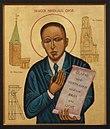
Blessed Nikolaus Gross
- January 2 – Bertram Ramsay, British admiral (b. 1883)
- January 3 – Edgar Cayce, American mysticist (b. 1877)
- January 4 – Ricardo Jiménez Oreamuno, 3-time President of Costa Rica (b. 1859)
- January 6
- Josefa Llanes Escoda, Filipino women's suffrage advocate, founder of the Girl Scouts of the Philippines (b. 1898)
- Herbert Lumsden, British general (killed in action) (b. 1897)
- William Noble, American missionary (b. 1866)
- Vladimir Vernadsky, Soviet mineralogist, geochemist (b. 1863)
- January 7
- Thomas McGuire, American World War II fighter ace (b. 1920)
- Prince Rainier of Saxe-Coburg and Gotha (b. 1900)
- January 9
- Dennis O'Neill, British child killed by his foster parents, which scandal resulted in an overhaul of the British Care Systems (b. 1932)
- Jüri Uluots, Estonian statesman (b. 1890)
- January 10 – Pēteris Juraševskis, 8th Prime Minister of Latvia (b. 1872)
- January 12 – Teresio Olivelli, Italian Roman Catholic soldier and venerable (b. 1916)
- January 15 – Pedro Abad Santos, Filipino politician, brother of José Abad Santos (b. 1876)
- January 16 – José Fabella, Filipino physician (b. 1889)
- January 19
- January 20 – Federico Pedrocchi, Italian artist, writer (b. 1907)
- January 21 – Sir Archibald Murray, British Army general (b. 1860)
- January 22 – Else Lasker-Schüler, German poet, author (b. 1869)
- January 23
- Nikolaus Gross, German Roman Catholic layman, martyr and blessed (b. 1898)
- Newton E. Mason, United States Navy rear admiral (b. 1850)
- Eugen Bolz, German politician, 20 July Plotter (b. 1881)
- January 30
- William Goodenough, British admiral (b. 1867)
- Pedro Paulet, Peruvian scientist (b. 1874)
- January 31 – Eddie Slovik, American soldier (b. 1920)
February
- February (or March) – Anne Frank, German-born Jewish diarist, writer (typhus in Bergen-Belsen concentration camp) (b. 1929)
- February 1
- Teresa Bogusławska, Polish poet and resistance worker (meningitis) (b. 1929)
- Bogdan Filov, Bulgarian archaeologist, historian and politician, 28th Prime Minister of Bulgaria (executed) (b. 1883)
- Dobri Bozhilov, 29th Prime Minister of Bulgaria (executed) (b. 1884)
- Ivan Ivanov Bagryanov, 30th Prime Minister of Bulgaria (executed) (b. 1891)
- Prince Kiril of Bulgaria (executed) (b. 1895)
- Petar Gabrovski, former acting Prime Minister of Bulgaria (executed) (b. 1898)
- February 2
- Adolf Brand, German campaigner for homosexuality (in bombing raid) (b. 1874)
- Alfred Delp, German Jesuit priest and philosopher of the German Resistance, 20 July plotter (executed) (b. 1907)
- Carl Friedrich Goerdeler, German politician, civil servant, executive and economist, 20 July plotter (executed) (b. 1884)
- Gustav Heistermann von Ziehlberg, German general, 20 July plotter (executed) (b. 1898)
- Joe Hunt, American tennis champion (military aircraft crash) (b. 1919)
- February 3 – Roland Freisler, Nazi German judge (in bombing raid) (b. 1893)
- February 5
- Denise Bloch, French World War II heroine (executed) (b. 1915)
- Aurelio Craffonara, Italian painter, illustrator (b. 1875)
- Lilian Rolfe, French World War II heroine (executed) (b. 1914)
- Violette Szabo, French/British World War II heroine (executed) (b. 1921)
- February 6 – Robert Brasillach, French writer (b. 1909)
- February 7 – Karl Schwitalle, German Olympic weightlifter (b. 1906)
- February 8 – Robert Mallet-Stevens, French architect, designer (b. 1886)
- February 10 – Anacleto Díaz, Filipino jurist (murdered during the Battle of Manila) (b. 1878)
- February 11 – Al Dubin, Swiss songwriter (b. 1891)
- February 12 – Antonio Villa-Real, Filipino jurist (murdered during the Battle of Manila) (b. 1878)
- February 13 – Maria Orosa, Filipino technologist, chemist, humanitarian and WWII heroine (b. 1893)
- February 15 – Helmut Möckel, German youth leader, politician (b. 1909)
- February 17 – Gabrielle Weidner, Belgian World War II heroine (b. 1914)
- February 18
- Jimmy Butler, American actor (b. 1921)
- Ivan Chernyakhovsky, Soviet general (b. 1906)
- February 19
- John Basilone, American war hero (b. 1916)
- Heinrich Jasper, German politician (b. 1875)
- February 21 – Eric Liddell, British Olympic athlete (b. 1902)
- February 22 – Sara Josephine Baker, American physician (b. 1873)
- February 23
- Serafino Mazzolini, Italian politician, lawyer and journalist (b. 1890)
- José María Moncada, 19th President of Nicaragua (b. 1870)
- February 24 – Josef Mayr-Nusser, Italian Roman Catholic layman, martyr and blessed (b. 1910)
- February 25 – Mário de Andrade, Brazilian writer, photographer (b. 1893)
- February 26
March
- March 1 – Lothar Sieber, German test pilot (b. 1922)
- Fritz Goerdeler, German resistance member (executed) (b. 1886)
- March 2 – Emily Carr, Canadian artist (b. 1871)
- March 3
- March 4
- Charles W. Bryan, American politician (b. 1867)
- Lucille La Verne, American actress (b. 1872)
- Mark Sandrich, American director (b. 1900)
- March 5
- Albert Richards, British war artist (b. 1919)
- Rupert Downes, Australian general (b. 1885)
- George Vasey, Australian general (b. 1895)
- Hasso von Boehmer, German Lieutenant Colonel, July 20 Plotter (b. 1904)
- March 7 – Ralph Ignatowski, American WWII hero (killed in action) (b. 1926)
- March 8
- Frederick Bligh Bond, British architect (b. 1864)
- Jack Lummus, American athlete and Medal of Honor recipient (b. 1915)
- March 12 – Friedrich Fromm, German Nazi official (executed) (b. 1888)
- March 14 – Antônio Francisco Braga, Brazilian composer (b. 1868)
- March 15 – Sava Caracaș, Romanian general (b. 1890)
- March 16 – Börries von Münchhausen, German poet (b. 1874)
- March 18 – William Grover-Williams, French race car driver, war hero (b. 1903)
- March 19 – Marcel Callo, French Roman Catholic layman, martyr and blessed (b. 1921)
- March 20
- Lord Alfred Douglas, English poet (b. 1870)
- Maria Lacerda de Moura, Brazilian feminist, anarchist, teacher, journalist and teacher (b. 1887)
- March 22
- Enrico Caviglia, Italian marshal (b. 1862)
- Eliyahu Bet-Zuri, Israeli assassin (executed) (b. 1922)
- Eliyahu Hakim, Israeli assassin (executed) (b. 1925)
- John Hessin Clarke, American Supreme Court Justice (b. 1857)
- Branca de Gonta Colaço, Portuguese writer, scholar and linguist (b. 1880)
- Heinrich Maier, Austrian Roman Catholic priest and blessed (b. 1908)
- Takeichi Nishi, Japanese gold medalist at the 1932 Summer Olympics, tank commander at Iwo Jima (b. 1902)
- March 23 – Élisabeth de Rothschild, French WWII heroine (b. 1902)
- March 26
- David Lloyd George, British politician and statesman, 51st Prime Minister of the United Kingdom (b. 1863)
- Tadamichi Kuribayashi, Imperial Japanese Army general, commander of the battle of Iwo Jima (probably killed in action) (b. 1891)
- Boris Shaposhnikov, Soviet military leader, Marshal of the Soviet Union (b. 1882)
- March 27 – Halid Ziya Uşaklıgil, Turkish author (b. 1867)
- March 29 – Ferenc Csik, Hungarian swimmer (b. 1913)
- March 30
- Élise Rivet, French nun, war heroine (b. 1890)
- Maurice Rose, American general (killed in action) (b. 1899)
- March 31
- Harriet Boyd Hawes, American archaeologist (b. 1871)
- Hans Fischer, German chemist, Nobel Prize laureate (b. 1881)
- Torgny Segerstedt, Swedish newspaper editor, publicist (b. 1876)
- Maria Skobtsova, Soviet Orthodox nun and saint (killed by poison) (b. 1891)
- Natalia Tulasiewicz, Polish teacher and Roman Catholic blessed (b. 1906)
April
- April – Auguste van Pels, German-Jewish housemate of Anne Frank (b. 1900) (exact date unknown)
- April 5 – Huldreich Georg Früh, Swiss composer (b. 1903)
- April 7
- April 9
- Dietrich Bonhoeffer, German theologian (hanged) (b. 1906)
- Wilhelm Canaris, German admiral, head of the Abwehr (b. 1887)
- Hans von Dohnanyi, Hungarian-born German lawyer, member of the German Resistance, 20 July Plotter (b. 1902)
- Ludwig Gehre, German Resistance member, 20 July Plotter (executed) (b. 1895)
- April 10
- Gloria Dickson, American actress (b. 1917)
- H.N. Werkman, Dutch artist, printer (b. 1882)
- Walther Wever, German fighter ace (killed in action) (b. 1923)
- April 11 – Frederick Lugard, 1st Baron Lugard, British colonial administrator (b. 1858)
- April 12 – Franklin D. Roosevelt, American political leader and statesman, 32nd President of the United States (b. 1882)
- April 13 – Ernst Cassirer, German philosopher (b. 1874)
- April 14
- Jean Maurice Paul Jules de Noailles, Duke of Ayen (b. 1893)
- Wilma Vinsant, American flight nurse serving during WWII (aircraft crash) (b. 1917)
- April 15 – Joachim Albrecht Eggeling, German SS general (b. 1884)
- April 16 – Ernst Bergmann, German philosopher (b. 1881)
- April 17 – Franz Heritsch, Austrian geologist, paleontologist (b. 1882)
- April 18
- Arthur Andrew Cipriani, Trinidad and Tobago labour leader (b. 1875)
- Sir Ambrose Fleming, British electrical engineer and physicist (b. 1849)
- Ernie Pyle, American journalist (killed in action) (b. 1900)
- Conrad Weygand, German chemist (b. 1890)
- William, Prince of Albania (b. 1876)
- April 21 – Walter Model, German field marshal (suicide) (b. 1891)
- April 22
- Käthe Kollwitz, German artist (b. 1867)
- Giuseppe Pagano, Italian architect (b. 1896)
- April 23 – Klaus Bonhoeffer, German resistance fighter, 20 July Plotter (b. 1901)
- April 24 – Ernst-Robert Grawitz, German Reichsphysician (S.S. and Police) in the Third Reich (probable suicide) (b. 1899)
- April 25 – Oriana Wilson, British humanitarian and naturalist and wife of polar explorer Edward Adrian Wilson (b. 1874)
- April 28
- Franz Brantzky, German painter, sculptor and architect (b. 1871)
- Hermann Fegelein, German Nazi general (b. 1906)
- Benito Mussolini, Italian politician, journalist, 27th Prime Minister of Italy and Duce of Fascism (executed) (b. 1883)
- Clara Petacci, mistress of Benito Mussolini (b. 1912)
- Nicola Bombacci, Italian Fascist politician (b. 1879)
- Achille Starace, Italian Fascist politician (b. 1889)
- Alessandro Pavolini, Italian Fascist politician (b. 1903)
- Roberto Farinacci, Italian Fascist politician (b. 1892)
- April 29 – Franz Breithaupt, German SS general (b. 1880)
- April 30
- Luisa Ferida, Italian actress (b. 1914)
- Adolf Hitler, Austrian-German politician, Chancellor of Germany and Führer of Nazi Germany (suicide) (b. 1889)
- Eva Braun, wife of Adolf Hitler (suicide) (b. 1912)
May
- May 1
- Joseph Goebbels, German Nazi propaganda minister (b. 1897)
- Magda Goebbels, wife of Joseph Goebbels (b. 1901)
- May 2
- Wilhelm Burgdorf, German general (suicide) (b. 1895)
- Max de Crinis, German psychiatrist (b. 1889)
- Hans Krebs, German general (suicide) (b. 1898)
- Prince Waldemar of Prussia (b. 1889)
- Martin Bormann, Nazi Party leader and private secretary to Adolf Hitler (b. 1900)
- May 3 – Mario Blasich, Italian physician, politician (b. 1878)
- May 4 – Fedor von Bock, German field marshal (b. 1880)
- May 5
- George Cary, American architect (b. 1859)
- Peter van Pels, German-Jewish love interest of diarist Anne Frank (b. 1926)
- May 6 – Xhem Hasa, Albanian nationalist (b. 1908)
- May 7 – Vladimir Boyarsky, Soviet army officer (b. 1901)
- May 8
- Ernst-Günther Baade, German general (b. 1897)
- Francis Bruguière, American photographer (b. 1875)
- Julius Hirsch, German footballer (b. 1892)[31][32]
- Wilhelm Rediess, SS and Police Leader of Nazi-occupied Norway (b. 1900)
- Josef Terboven, Reichskommissar of Nazi-occupied Norway (b. 1898)
- Bernhard Rust, education minister of Nazi Germany (b. 1883)
- May 9 – Gustav Becking, German musician (b. 1894)
- May 10 – Konrad Henlein, Sudeten German Nazi leader (b. 1898)
- May 11 – Kiyoshi Ogawa, Japanese kamikaze pilot (b. 1922)
- May 14
- Joseph Barthélemy, French jurist, politician and journalist (b. 1874)
- Heber J. Grant, 7th President of The Church of Jesus Christ of Latter-day Saints (b. 1856)
- May 15
- May 16 – Kaju Sugiura, Japanese admiral (b. 1896)
- May 18 – William Joseph Simmons, American founder of the second Ku Klux Klan (b. 1880)
- May 19 – Philipp Bouhler, German Nazi leader and general (b. 1899)
- May 21
- Frank Cable, American naval architect (b. 1863)
- Horace B. Carpenter, American actor (b. 1875)
- Prince Kan'in Kotohito, Japanese prince, member of the Imperial Japanese Army General Staff Office (b. 1865)
- May 23 – Heinrich Himmler, High Nazi Germany official, head of the SS (b. 1900)
- May 24 – Robert Ritter von Greim, German field marshal (b. 1892)
- May 25 – Rafael Estrella Ureña, Dominican lawyer and politician, acting President of the Dominican Republic (b. 1889)
- May 31
June
- June 2 – József Heszlényi, Hungarian general (b. 1890)
- June 4 – Georg Kaiser, German dramatist (b. 1878)
- June 7 – Kitaro Nishida, Japanese philosopher (b. 1870)
- June 8
- Robert Desnos, French poet, resistance fighter (typhoid) (b. 1900)
- Karl Hanke, German Nazi general and last Reichsführer-SS (killed) (b. 1903)
- June 13 – Minoru Ōta, Japanese admiral (b. 1891)
- June 15
- Nikola Avramov, Bulgarian painter (b. 1897)
- Carl Gustaf Ekman, Prime Minister of Sweden (b. 1872)
- June 16
- Henry Bellamann, American writer (b. 1882)
- Nikolai Berzarin, Soviet Red Army general (b. 1904)
- Nils Edén, 15th Prime Minister of Sweden (b. 1871)
- Aris Velouchiotis, Greek World War II resistance leader (b. 1905)
- June 18
- Florence Bascom, American geologist and educator (b. 1862)
- Simon Bolivar Buckner, Jr., American general (killed in action at Okinawa) (b. 1886)
- William Frederick, Prince of Wied (b. 1872)
- June 19 – Seweryn Franciszek Światopełk-Czetwertyński, Polish politician (b. 1873)
- June 20
- Robert Crewe-Milnes, 1st Marquess of Crewe, British politician (b. 1858)
- Prince Luís Fernando de Orleans y Borbón (b. 1888)
- June 22
- Isamu Chō, Japanese general (b. 1895)
- Mitsuru Ushijima, Japanese general (b. 1887)
- June 23
- Maria Raffaella Cimatti, Italian member of the Hospitaler Sisters of Mercy, religious sister and blessed (b. 1861)
- Giuseppina Tuissi, Italian resistance member (b. 1923)
- June 24 – José Gutiérrez Solana, Spanish painter (b. 1886)
- June 26 – Javier Ángel Figueroa, Chilean lawyer, politician (b. 1862)
- June 27
- Alberto Capozzi, Italian actor (b. 1886)
- Emil Hácha, 3rd President of Czechoslovakia, State President of Protectorate of Bohemia and Moravia (b. 1872)
- June 30
- Gabriel El-Registan, Soviet poet (b. 1899)
- Germogen, Yugoslav bishop, metropolitan (b. 1861)
July
- July 1 – Félix Evaristo Mejía, Dominican diplomat, educator and writer (b. 1866)
- July 2 – Óscar R. Benavides, Peruvian field marshal, diplomat, politician and President of Peru (b. 1876)
- July 5 – John Curtin, 14th Prime Minister of Australia (b. 1885)
- July 7 – Peter To Rot, Papuan Roman Catholic layman, martyr and blessed (b. 1912)
- July 9 – Luigi Aldrovandi Marescotti, Italian politician, diplomat (b. 1876)
- July 12 – Wolfram Freiherr von Richthofen, German field marshal (b. 1895)
- July 13 – Alla Nazimova, Russian-born American actress (b. 1879)
- July 16 – Addison Randall, American actor (b. 1906)
- July 17 – Ernst Busch, German field marshal (b. 1885)
- July 19 – George Barbier, American actor (b. 1864)
- July 20 – Paul Valéry, French poet (b. 1871)
- July 24 – Arnold von Winckler, German general (b. 1856)
- July 25 – Malin Craig, United States Army general (b. 1875)
- July 28 – Margot Asquith, Countess of Oxford and Asquith (b. 1864)
- July 29 – Maria Pierina De Micheli, Italian Roman Catholic religious sister, mystic and blessed (b. 1890)
- July 31 – Artemio Ricarte, Filipino general (b. 1866)
August
- August 1 – Blas Cabrera Felipe, Spanish physicist (b. 1878)
- August 2 – Pietro Mascagni, Italian composer (b. 1863)
- August 3 – Roman Kochanowski, Polish painter, illustrator (b. 1857)
- August 4 – Gerhard Gentzen, German mathematician and logician (b. 1909)
- August 5 – Nat Jaffe, American swing jazz pianist (b. 1918)
- August 8 – Joseph Pujol, Le Pétomane, French flatulist (b. 1857)
- August 7 – Jacques Vaillant de Guélis, French WWII hero (b. 1907)
- August 9
- Harry Hillman, American track athlete (b. 1881)
- Jun Tosaka, Japanese philosopher (b. 1900)
- August 10 – Robert H. Goddard, American rocket scientist (b. 1882)
- August 12 – Karl Leisner, German Roman Catholic priest and blessed (b. 1915)
- August 15 – (ritual suicide)
- Korechika Anami, Japanese general (b. 1887)
- Matome Ugaki, Japanese admiral (b. 1890)
- August 16 – Takijirō Ōnishi, Japanese admiral (ritual suicide) (b. 1891)
- August 18
- Netaji Subhas Chandra Bose, Indian political leader (aircraft incident) (b. 1897)
- Sarala Devi Chaudhurani, Indian educationist (b. 1872)
- August 19 – Tomás Burgos, Chilean philanthropist (b. 1875)
- August 22 – Mustafa Al-Maraghi, Egyptian reformer (b. 1881)
- August 24 – Shizuichi Tanaka, Japanese general (b. 1887)
- August 25
- John Birch, American missionary for whom the John Birch Society is named (killed in action) (b. 1918)
- Willis Augustus Lee, American admiral, Olympic shooter (b. 1888)
- Thomas F. Woodlock, editor of The Wall Street Journal and Interstate Commerce Commission commissioner (b. 1866)
- August 26
- Pio Collivadino, Argentinian painter (b. 1869)
- Franz Werfel, Austrian writer (b. 1890)
- August 27 – Maria Pilar Izquierdo Albero, Spanish Roman Catholic religious professed and blessed (b. 1906)
- August 29 – Fritz Pfleumer, German engineer, inventor (b. 1881)
- August 30 – Florencio Harmodio Arosemena, 6th President of Panama (b. 1872)
- August 31
- Stefan Banach, Polish mathematician (b. 1892)
- Macarius III of Alexandria, Egyptian patriarch, saint (b. 1872)
September
- September 1 – Frank Craven, American actor (b. 1881)
- September 6
- Witold Leon Czartoryski, Polish nobleman (b. 1864)
- John S. McCain Sr., American admiral (b. 1884)
- Maximilian von Herff, German general (b. 1893)
- September 9 – Aage Bertelsen, Danish painter (b. 1873)
- September 12 – Sugiyama Hajime, Japanese general (b. 1880)
- September 15
- Harry Daghlian, American physicist (b. 1921)
- Richard Friedrich Johannes Pfeiffer, German physician and bacteriologist (b. 1858)[33]
- André Tardieu, 3-time Prime Minister of France (b. 1876)
- Anton Webern, Austrian composer (b. 1883)
- Zhang Mingqi, Qing Dynasty politician (b. 1875)
- September 16 – John McCormack, Irish tenor (b. 1884)
- September 18
- José Agripino Barnet, Cuban politician and diplomat, acting President of Cuba (b. 1864)
- Blind Willie Johnson, American gospel blues singer (b. 1897)
- September 20
- Jack Thayer, American survivor of the sinking of the RMS Titanic (b. 1894)
- Eduard Wirths, German doctor, chief SS doctor at Auschwitz concentration camp (b. 1909)
- Augusto Tasso Fragoso, Brazilian soldier, statesman and Interim President of Brazil (b. 1869)
- September 24 – Hans Geiger, German physicist, inventor (b. 1882)
- September 25 – Plutarco Elías Calles, Mexican general and president (1924-1928), known as Jefe Maximo ("Maximum Boss") (b. 1877)[34]
- September 26
- Béla Bartók, Hungarian composer (b. 1881)
- A. Peter Dewey, first American casualty in Vietnam (b. 1916)
- Kiyoshi Miki, Japanese philosopher (b. 1897)
October
- October 1 – Walter Bradford Cannon, American physiologist (b. 1871)
- October 6
- Leonardo Conti, German physician, Nazi officer (suicide) (b. 1900)
- Hans Vogel, chairman of the Social Democratic Party of Germany (SPD) (b. 1881)
- October 10 – Joseph Darnand, Vichy French politician (executed) (b. 1897)
- October 12 – Dmytro Antonovych, Soviet politician (b. 1877)
- October 13 – Milton S. Hershey, American chocolate tycoon (b. 1857)
- October 15 – Pierre Laval, French politician, 2-time Prime Minister of France (executed) (b. 1883)
- October 18 – Frederick Hovey, American tennis player (b. 1868)
- October 19
- Plutarco Elías Calles, Mexican general, politician and 40th President of Mexico (b. 1877)
- N. C. Wyeth, American illustrator (b. 1882)
- October 21 – Henry Armetta, Italian actor (b. 1888)
- October 24 – Vidkun Quisling, Norwegian Nazi collaborator (executed) (b. 1887)
- October 25 – Robert Ley, German Nazi politician (suicide) (b. 1890)
- October 26
- Adolf von Brudermann, Austro-Hungarian general (b. 1854)
- Paul Pelliot, French explorer (b. 1878)
- October 28 – Gilbert Emery, American actor (b. 1875)
- October 30
- Sinn Sing Hoi, Chinese composer (b. 1905)
- October 31
- Ignacio Zuloaga, Basque Spanish painter (b. 1870)
- Henry Ainley, British actor (b. 1879)
November
- November 7 – Gus Edwards, American songwriter (b. 1879)
- November 8 – August von Mackensen, German field marshal (b. 1849)
- November 11 – Jerome Kern, American composer (b. 1885)
- November 13 – Edwyn Alexander-Sinclair, British admiral (b. 1865)
- November 16 – Sigurður Eggerz, Minister for Iceland during World War I and 2nd Prime Minister of Iceland (b. 1875)
- November 17 – Frederick Francis IV, Grand Duke of Mecklenburg-Schwerin (b. 1882)
- November 19 – Carlo Alberto Biggini, Italian Fascist politician (b. 1902)
- November 20 – Francis William Aston, British chemist, Nobel Prize laureate (b. 1877)
- November 21
- Robert Benchley, American humorist, theater critic and actor (b. 1889)
- Al Davis, American boxer (b. 1920)
- Alice Dudeney, British author (b. 1866)
- Ellen Glasgow, American novelist (b. 1873)
- Alexander Patch, United States Army lieutenant general, World War II army commander (b. 1889)
- November 22 – Irma Ingertha Gram, Norwegian historian (b. 1873)
- November 23
- Charles Armijo Woodruff, 11th Governor of American Samoa (b. 1884)
- Charles Coborn, British singer (b. 1852)
- November 25 – Doris Keane, American stage actress (b. 1881)
- November 27 – Josep Maria Sert, Spanish Catalan muralist (b. 1874)
- November 28 – Dwight F. Davis, American tennis player (b. 1879)
- November 30 – Shigeru Honjō, Japanese general (suicide) (b. 1876)
December
- December 1 – Anton Dostler, German general (executed) (b. 1891)
- December 3 – George McKay, Soviet-born American actor (b. 1884)
- December 4
- December 5 – Cosmo Lang, Archbishop of Canterbury (b. 1864)
- December 8 – Gabriellino D'Annunzio, Italian actor, director and screenwriter (b. 1886)
- December 12 – Prince Frederick of Schaumburg-Lippe (b. 1868)
- December 13
- Juana Bormann, German Nazi concentration camp guard (executed) (b. 1893)
- Henri Dentz, French general (b. 1881)
- Irma Grese, German warden at Bergen-Belsen concentration camp (executed) (b. 1923)
- Josef Kramer, German commandant of Bergen-Belsen concentration camp (executed) (b. 1906)
- Elisabeth Volkenrath, German supervisor at Nazi concentration camps (executed) (b. 1919)
- December 14
- December 16
- Giovanni Agnelli, Italian entrepreneur, founder of Fiat (b. 1866)
- Fumimaro Konoe, Japanese general, politician and 23rd Prime Minister of Japan (b. 1891)
- December 19
- December 21 – George S. Patton, American general (b. 1885)
- December 22 – Otto Neurath, Austrian philosopher, political economist (b. 1892)
- December 24 – Luis Chamizo Trigueros, Spanish writer (b. 1894)
- December 25
- Karl Borromaeus Maria Josef Heller, Austrian entomologist (b. 1864)
- Duy Tân, Emperor of Vietnam (b. 1900)
- December 26
- Russell Gleason, American actor (b. 1907)
- Roger Keyes, 1st Baron Keyes, British admiral (b. 1872)
- December 28 – Theodore Dreiser, American author (b. 1871)
Nobel Prizes
- Physics – Wolfgang Pauli
- Chemistry – Artturi Ilmari Virtanen
- Physiology or Medicine – Sir Alexander Fleming, Ernst Boris Chain, Sir Howard Florey
- Literature – Gabriela Mistral
- Peace – Cordell Hull
References
- ^ "One day they simply weren't there any more..." (PDF). anne frank house. March 2015. Retrieved April 11, 2015.
- ^ "Penicillin Pills May Replace Injection". The Milwaukee Sentinel. February 16, 1945. Retrieved May 22, 2012.
- ^ "SS General von Steuben [+1945]". WreckSite. Retrieved December 6, 2010.
- ^ "Guinness World Records Website". guinnessworldrecords.com.
- ^ Guinness Book of World Records. 2008. p. 137.
- ^ Year by Year – 1945. History International.
- ^ Nohlen, Dieter; Stöver, Philip, eds. (2010). Elections in Europe: A data handbook. Baden-Baden: Nomos. p. 1678. ISBN 978-3-8329-5609-7.
- ^ Mayne, Alan James (1999). From Politics Past to Politics Future: An Integrated Analysis of Current and Emergent Paradigms. Greenwood Publishing Group. p. 59. ISBN 978-0-275-96151-0. Retrieved August 31, 2013.
- ^ "1945". A WW2 Timeline. Worldwar-2.net. Retrieved November 7, 2012.
- ^ Smythe, John (1967). Bolo Whistler: The Life of General Sir Lashmer Whistler. London: Muller.
- ^ Duncan, George R. "Massacres and Atrocities of World War II". Retrieved October 15, 2015.
- ^ "Central Europe Campaign – 522nd Field Artillery Battalion". Retrieved January 12, 2015.
Jewish prisoners from the outer Dachau camps were marched to Dachau, and then 70 miles south. Many of the Jewish marchers weighed less than 80 pounds. Shivering in their tattered striped uniforms, the "skeletons" marched 10 to 15 hours a day, passing more than a dozen Bavarian towns. If they stopped or fell behind, the SS guards shot them and left their corpses along the road.
- ^ "Search Results". www.ushmm.org. Retrieved April 5, 2018.
- ^ "Liberatione". Lib.usc.edu. May 4, 1945. Archived from the original on April 14, 2016. Retrieved January 16, 2012.
- ^ "Befrielsen 1945 – Tidslinje". Befrielsen1945.dk. January 2, 2012. Archived from the original on January 22, 2011. Retrieved January 16, 2012.
- ^ Waller, Derek (September 25, 2010). "U-Boats that Surrendered". u-boat.net. Retrieved November 14, 2014.
- ^ "Hungary: Recovery of Crown Jewels 1945". Retrieved December 17, 2008.
- ^ Milcic, Allen. "Croatian Axis Forces in WWII". Retrieved June 28, 2012.
- ^ Dizdar, Zdravko (December 2005). "Prilog istraživanju problema Bleiburga i križnih putova (u povodu 60. obljetnice)" [An addition to the research of the problem of Bleiburg and the Way of the Cross (dedicated to their 60th anniversary)]. The Review of Senj (in Croatian). Senj, Croatia: City Museum Senj; Senj Museum Society. 32 (1): 117–193. ISSN 0582-673X. Retrieved May 28, 2012.
- ^ Bethell, Nicholas (1974). The Last Secret. London.
- ^ Palaich, Michael (1991). "Bleiburg Tragedy". Retrieved August 15, 2013.
- ^ a b c d e f "1945 – The Decision to Drop the Bomb". NuclearFiles. Archived from the original on April 6, 2010.
- ^ "Brief History (timeline)", AI Topics, Association for the Advancement of Artificial Intelligence, retrieved August 24, 2016
- ^ "1945: Labour landslide buries Churchill". BBC News. April 5, 2005.
- ^ Pike, John. "The Soviet Army Offensive: Manchuria, 1945". Globalsecurity.org. Retrieved January 16, 2012.
- ^ Angier, R. B.; Boothe, J. H.; Hutchings, B. L.; Mowat, J. H.; Semb, J.; Stokstad, E. L. R.; Subbarow, Y.; Waller, C. W.; Cosulich, D. B.; Fahrenbach, M. J.; Hultquist, M. E.; Kuh, E.; Northey, E. H.; Seeger, D. R.; Sickels, J. P.; Smith Jr, J. M. (1945). "Synthesis of a Compound Identical with the L. Casei Factor Isolated from Liver". Science. 102 (2644): 227–28. Bibcode:1945Sci...102..227A. doi:10.1126/science.102.2644.227. PMID 17778509.
- ^ Hoffbrand, A. V.; Weir, D. G. (2001). "The history of folic acid". British Journal of Haematology. 113 (3): 579–589. doi:10.1046/j.1365-2141.2001.02822.x. PMID 11380441. S2CID 22925228.
- ^ a b c d e f g h i j k l m n o p q r s t Jessup, John E. (1989). A Chronology of Conflict and Resolution, 1945-1985. New York: Greenwood Press. ISBN 0-313-24308-5.
- ^ "Discovery of Promethium". Oak Ridge National Laboratory Review. 36 (1). 2003. Archived from the original on June 22, 2011. Retrieved June 16, 2011.
- ^ David J. Goldman (2014). Jewish Sports Stars; Athletic Heroes Past and Present
- ^ Ernst Otto Bräunche (2006). Sport in Karlsruhe; von den Anfängen bis heute
- ^ Wallace, Sam (January 25, 2020). "The imperishable story of Julius Hirsch: the great goalscorer murdered at Auschwitz who adorns Stamford Bridge mural" – via The Telegraph.
- ^ Richard Friedrich Johannes Pfeiffer, 1858-1945
- ^ "Plutarco Elías Calles" (in Spanish). Biografias y Vidas. Retrieved May 29, 2019.
- ^ Siegman, Joseph (2020). Jewish Sports Legends: The International Jewish Sports Hall of Fame. U of Nebraska Press. ISBN 9781496222121.
Further reading
- Ian Buruma. Year Zero: A History of 1945 (Penguin Press; 2013) 368 pages; covers liberation, revenge, decolonization, and the rise of the United Nations. excerpt
- International News Service, It Happened In 1945 The Essential Year Book (1946)
- Keith Lowe. Savage Continent: Europe in the Aftermath of World War II (2012) excerpt and text search
- McDannald, A. H. ed. The Americana Annual 1946 (1946) events of 1945 online; encyclopedia yearbook global coverage in 950pp
- Walter Yust, ed. 10 Eventful Years, 1937 – 1946 Chicago: Encyclopædia Britannica, 1947, 4 vol., encyclopedia yearbook online
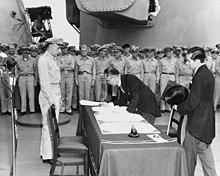
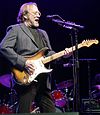

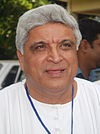
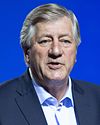
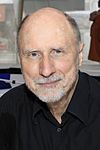


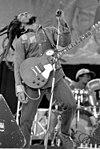

.jpg)
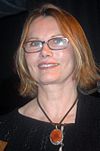
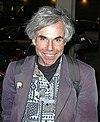
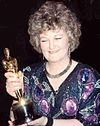
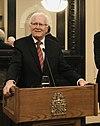
.jpg)

.jpg)
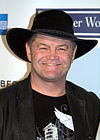
%2c_Bestanddeelnr_923-6444.jpg)

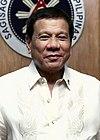
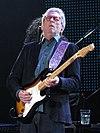
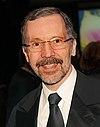
.jpg)
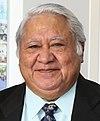
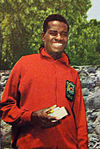

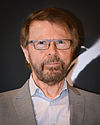
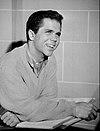
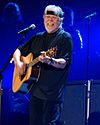
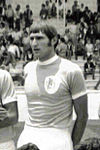
.jpg)

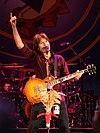
.jpg)
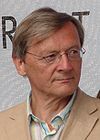
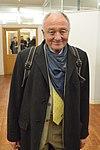
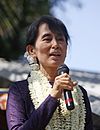
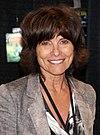
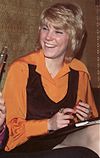
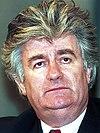
.jpg)
.jpg)
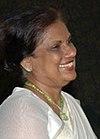
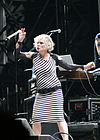
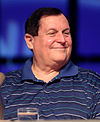
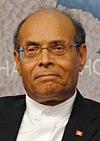
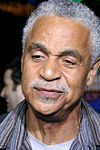
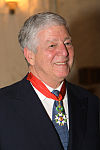
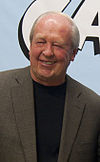
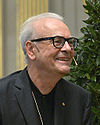
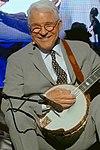
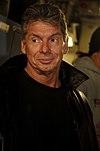
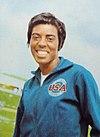


_(cropped).jpg)
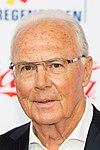
.jpg)
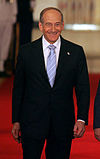
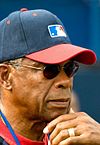
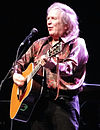

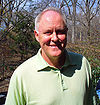

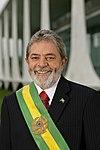
.jpg)
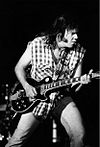

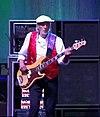
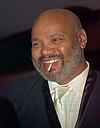
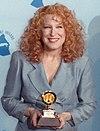
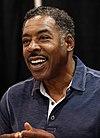
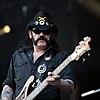
.jpg)
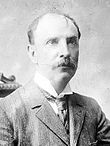
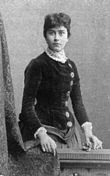
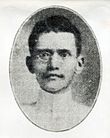
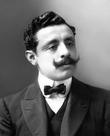
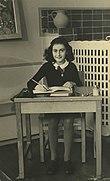
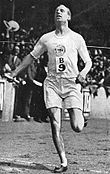
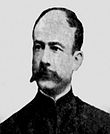
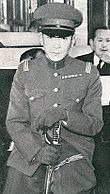
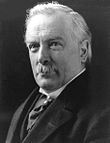
.jpg)
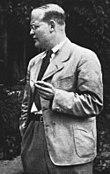
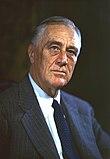
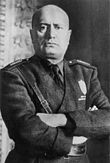
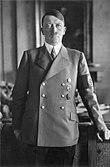
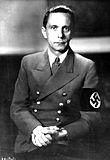
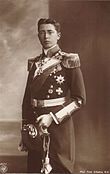
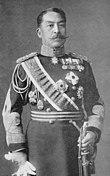
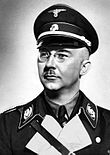
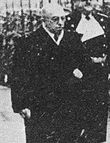
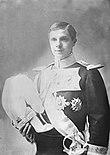
._1934.jpg)
